LET MY PEOPLE GO
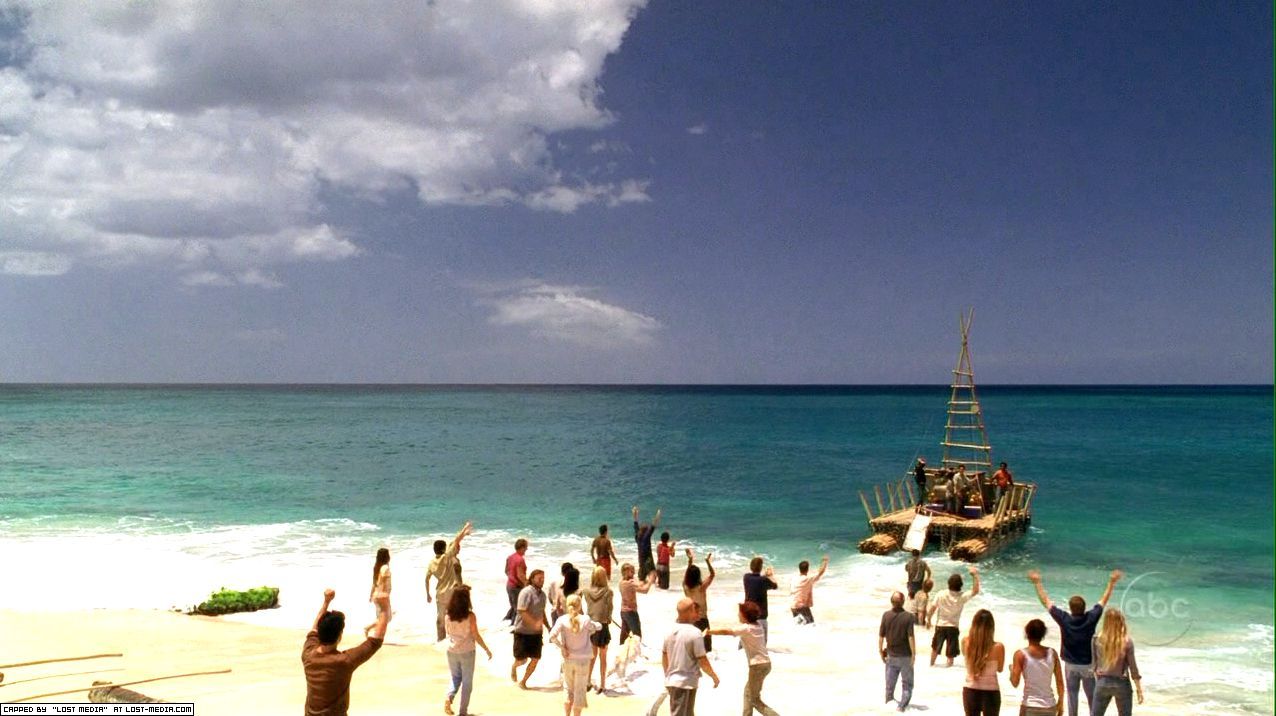
This is it, folks. We've finally come to the end of the beginning of LOST. It's taken me longer than expected to finish this Reset Rewatch, but I'm sure you all can understand. What with the job and the kids, the holidays, the houseguests, the online outbreaks of hiatus induced hysteria ... nothing is ever as easy as you think it'll be.
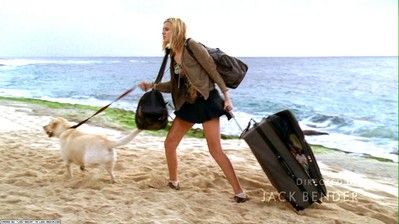
The original purpose of my Reset Rewatch was to go back across old terrain with an eye towards the future, to try and glean some clues perhaps hidden in the Season One pirate's map that might point towards the buried treasure chest of LOST secrets that's finally about to be uncovered.
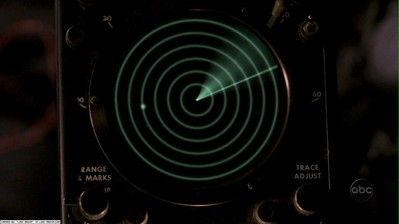
I'm not sure on that count that I was successful, but that's mostly because I've come to suspect my original hypothesis was faulty. I don't think the writers knew their destination when they started on this journey. In fact, I think that's recently been confirmed by J. J. Abrams himself. I think now that all the original writers did was build a sturdy ship to carry their gigantic story. Then they pushed it out onto the sea of imagination, to see where the winds and the fates might take it.
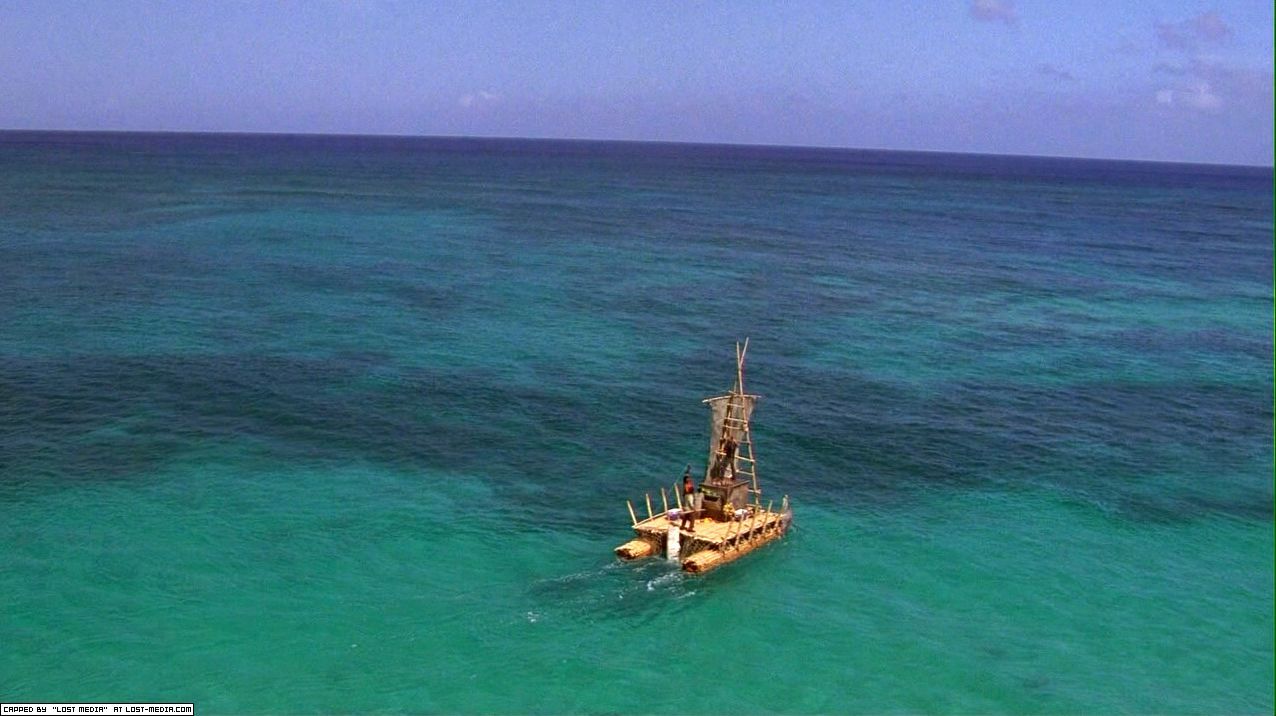
No one can ever say it hasn't been an entertaining voyage. Rewatching Exodus, even all these years later, is like watching a most excellent two hour film. As the culmination to one of the finest seasons of television ever, it's hard to imagine one way it could have been better. The great iconic moments all still inspire the same awe.
The majestic launch of the raft.
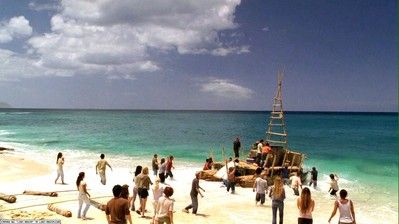
Walt's capture by the fiendish Others.
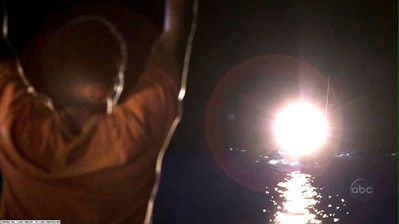
The jawdropping awe of seeing the Black Rock for the first time .
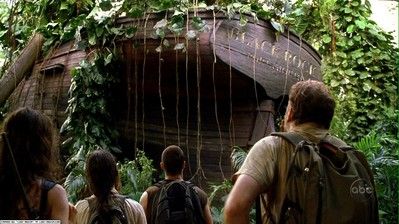
Aaron's first post-birth kidnapping.
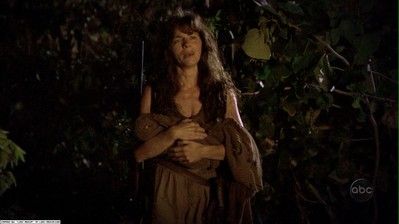
The assumption of Arzt into heaven.
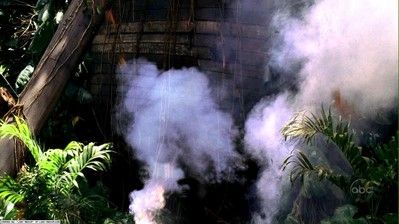
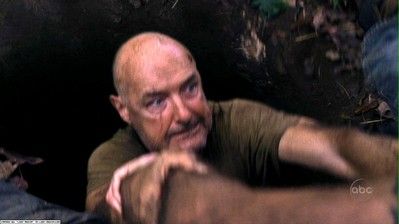
And of course, the blowing open of the Swan Hatch -
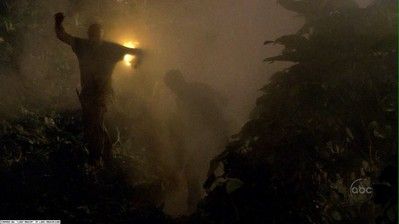
- the big hole that would be our entrance into the labyrinth which would end up at that same big hole at the end of Season Five, this time being blown up from the inside out.
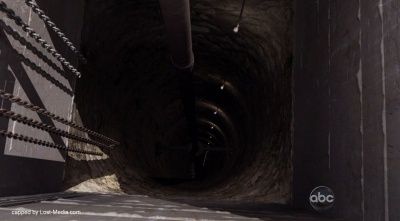
We didn't know it yet, but the great spiral of interlocking storytelling loops was beginning right then and there in the moment the Hatch was blown. It was an even bigger moment than we could ever have imagined. Like every episode in Season One, however, this one was more than just the sum of its mindblowing parts. I think of Season One as LOST B. F. - LOST Before Fanboys. Yeah, I know they existed back then, but in good old 2005, LOST was very much a mass viewing experience, a shared pop cultural phenomenon that all kinds of people could enjoy. We buzzed it about across cubicle walls and dinner tables and in queues and on barstools. It's hard to remember that now when it seems like most hardcore LOST fans have become internet exiles, each of us isolated in our laptop cells, tapping out our esoteric theories to one another on the keyboard shaped walls of our echo chambers.

We used to actually talk about LOST to other people. And it's easy to see why. Season One had mysteries and secrets and supernatural phenomena ... but far more than that, it had Heart.
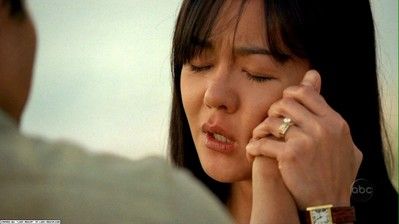


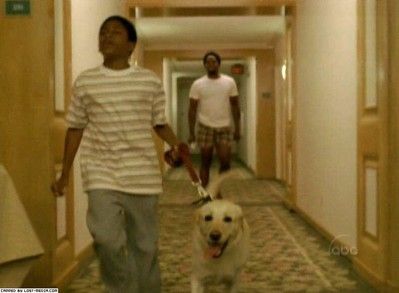
We watched Walt and Michael grow from angry strangers to a father and son bound by more than mere DNA. In trying to decode the mystery of his very special boy, Michael had begun to unlock the secrets to himself.
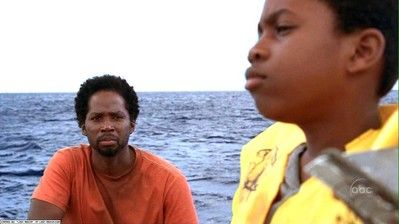
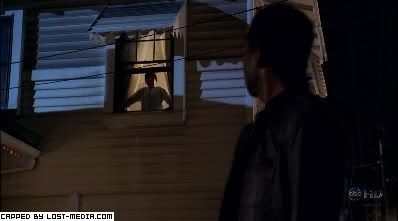

Jin and Sun's brittle marriage had shattered before our eyes into a million tiny papercuts of missed communication.
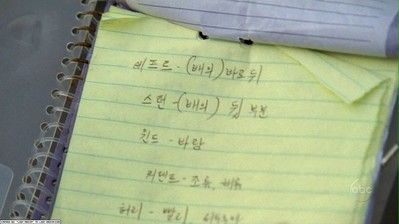
But Sun knit it back together with the book of translation she made for Jin as he was leaving on the raft.
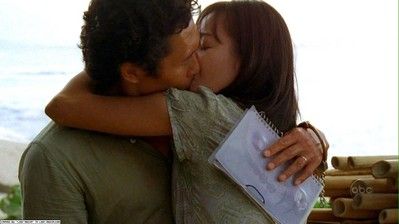
There were tearful apologies and a final kiss before the Kwon marriage of misfortune began another hopeless separation.
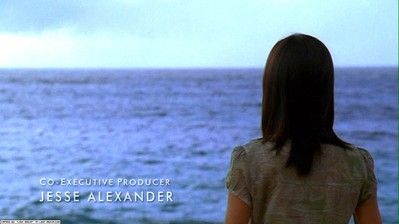
Shannon first encountered Sayid as a generically suspicious Arab leaving his baggage near her chair,
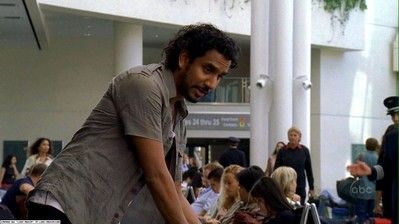
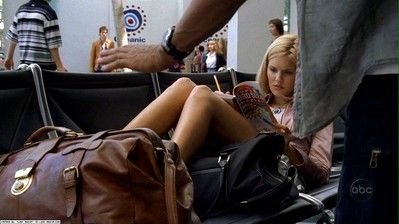
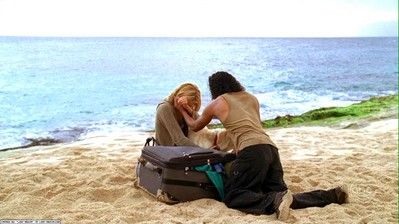
Charlie started his journey as the kind of soulless junkie who would beat up a woman for a one inch ball of smack.
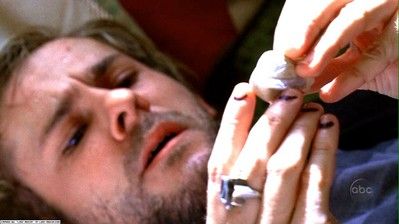
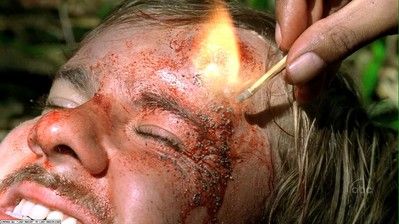
watched him evolve into the kind of grown up who would risk his own life to protect a young madonna and her helpless babe.
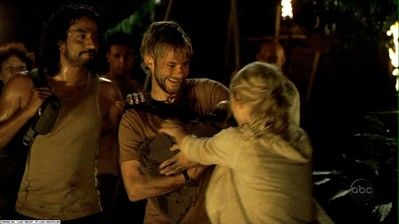
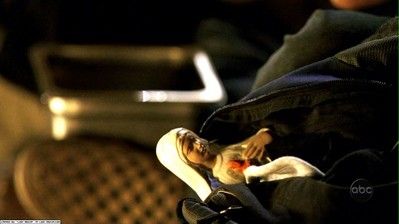
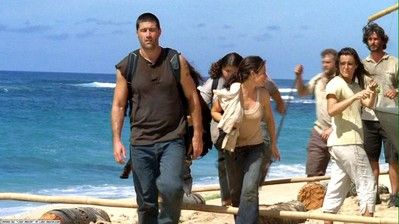
Jack's progress towards becoming the Supreme Leader of the survivors was the most predictable story arc, but it was coherent and also real. People had sought psychological shelter under the umbrella of the AMA approved Captain America, and he had truly grown into the role.
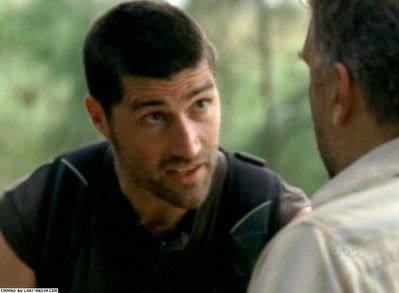
He was even able to deal diplomatically with a schnook like Dr. Leslie Arzt, professor emeritus of Kabloom College.
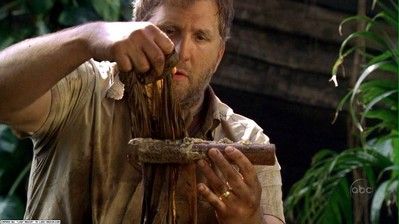
And like the unflappable hero he'd become, Jack took it right in stride when the good Doctor Artz ended up as nothing more than a glob of schmutz on his T shirt.
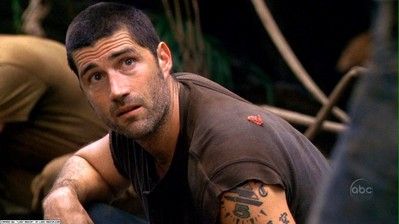
Sawyer's story arc, on the other hand, was the opposite of predictable.
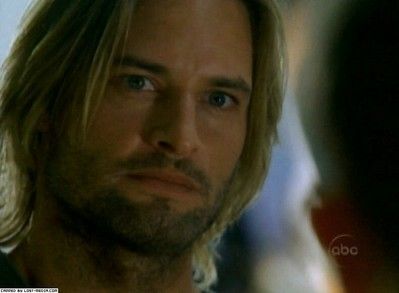
He had subtly but miraculously morphed over the course of the season from a self centered asshole and destroyer of families
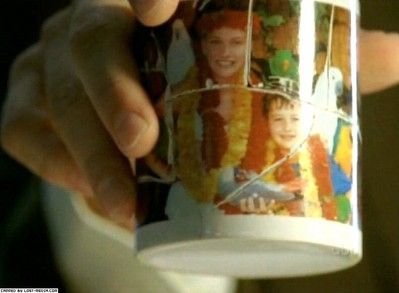
to the kind of shining knight who would take a bullet for another man's child. He claimed that "I ain't no hero" but only the flattest interpretation would agree with that.
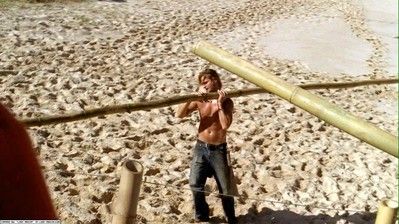
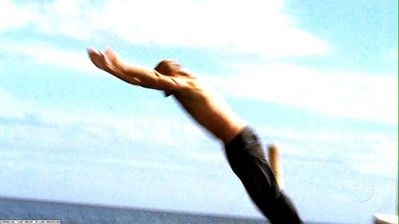
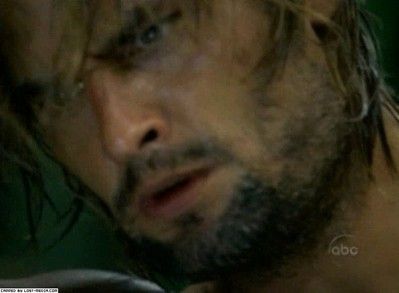
The complex and colorful part of Sawyer's hero's journey had begun years and years before, in the earliest episodes of LOST, and it has spanned all the seasons. It's mind boggling to me that so many managed to miss it for so long.
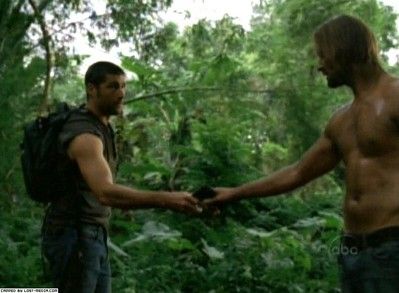
Jack and Sawyer, the yin yang man candy of LOST, had their very own iconic moment in this episode.
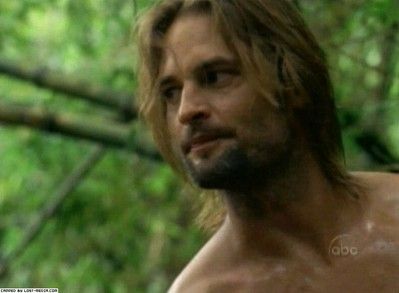
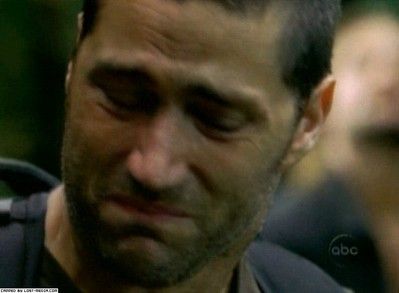
Jack pinched back tears and finally melted down into all out man-jears bawling over the lost chance he'd never have to forgive his dear old drunken Dad. It was without a doubt LOST's gayest scene ever.
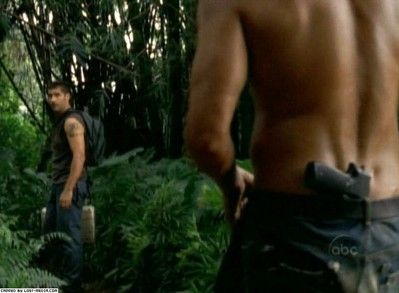
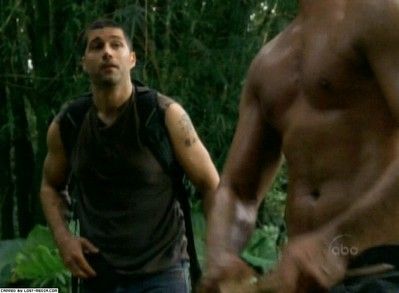

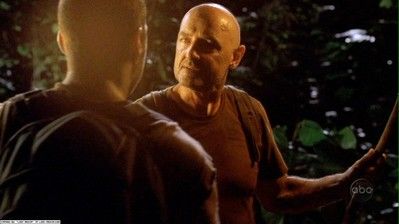
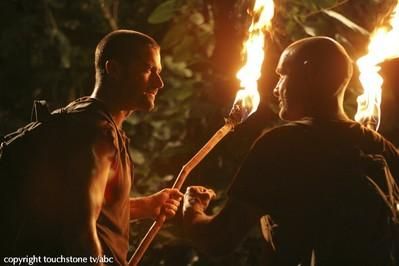
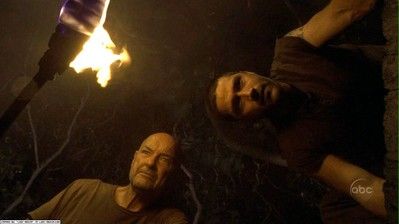
This conversation felt, at that given point in time, like the distillation of what LOST was going to be about - faith, fate and the eternal question of whether or not there exists such a thing as free will. Years later, and many meandering plot lines under the bridge, it all feels much less clear to me than it did back then. Jack, circa Season One, did not believe in Destiny. Jack, circa Season Five, had so much blind faith in Destiny that he was willing to drop a hydrogen bomblet into a hole beneath his feet just because the Destiny Fairy told him to. I have to admit I don't get it.
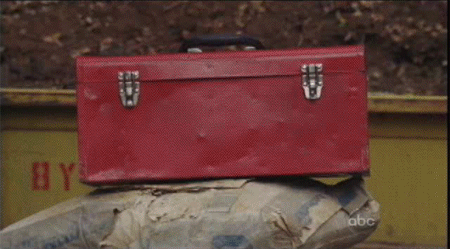
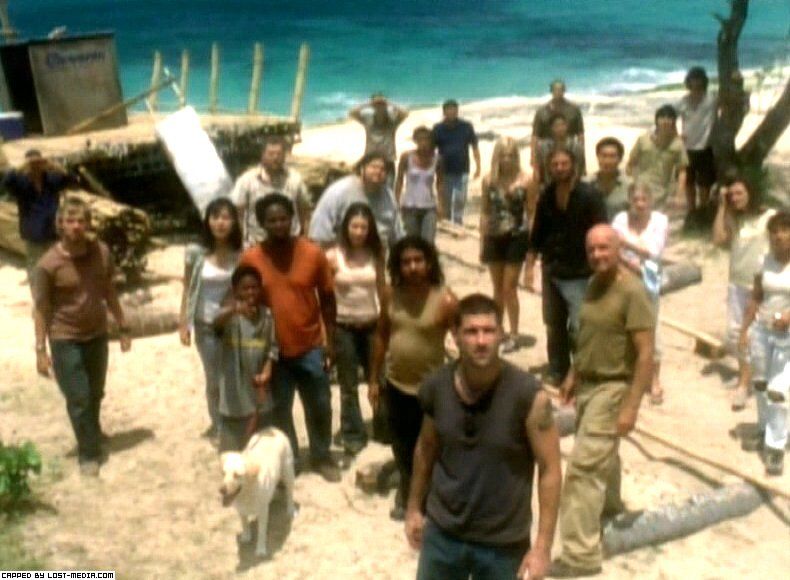
This final episode of Season One was named Exodus, after the second book of the biblical Old Testament. This ponderous book begins with the Israelites, the descendants of Jacob, exiled - much like our Losties - in a land where they do not belong and are not wanted. When it comes to iconic moments, the biblical Exodus is a book filled with some of literature's greatest - the plagues visited upon the Egyptians, the parting of the Red Sea for the Chosen People, God's delivery to Moses of the famous Ten Commandments and the endless journey of the Israelites through the desert to the Promised Land, the place that Moses is allowed to see ... but never enter.
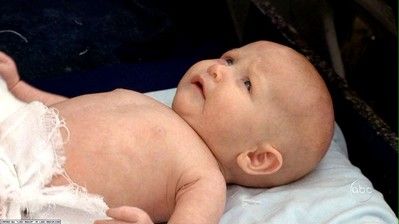
This episode is filled with winks and nods to the great Book. First of all, and most obviously, this was the episode where Aaron receives his name. Claire first blurts it out almost as if someone else is speaking through her. She tells Sun she doesn't know what it means, and the implication is that she doesn't know why she has chosen it. It's almost like her baby was destined to be named Aaron, which would be all the more ironic given that Claire states plainly that Destiny is something that she, like her brother from another mother, doesn't believe in. But in the Old Testament, whatever else the name may mean, Aaron is the faithful and ever helpful brother of Moses, the great hero of the Book of Exodus.
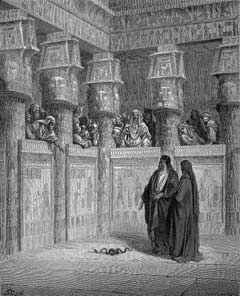
In Exodus 2:22, Moses calls himself "a stranger in a strange land" and I'm not sure if you remember, or if you want to remember, but that just happens to be exactly the title of the episode where we learned the meaning of Jack's sexy and beautiful tattoos.
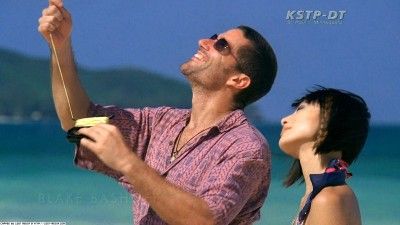
We've also heard Jack referred to directly as Moses - by Naomi, in Through the Looking Glass. Is it possible that is a connection we'll see revisited? Or was that whole cultural reference played out the first time Jack (didn't) lead his people off the Island?
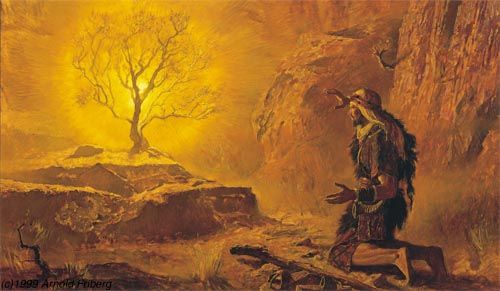
Once the Israelites were given the ok to head out across the Red Sea, the Lord took on the form of "pillar of smoke" to lead them along the way.
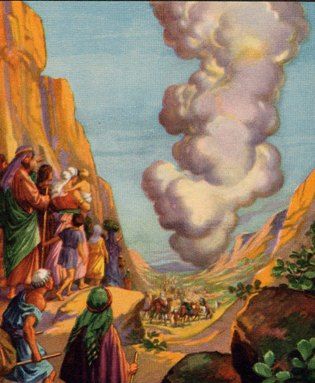
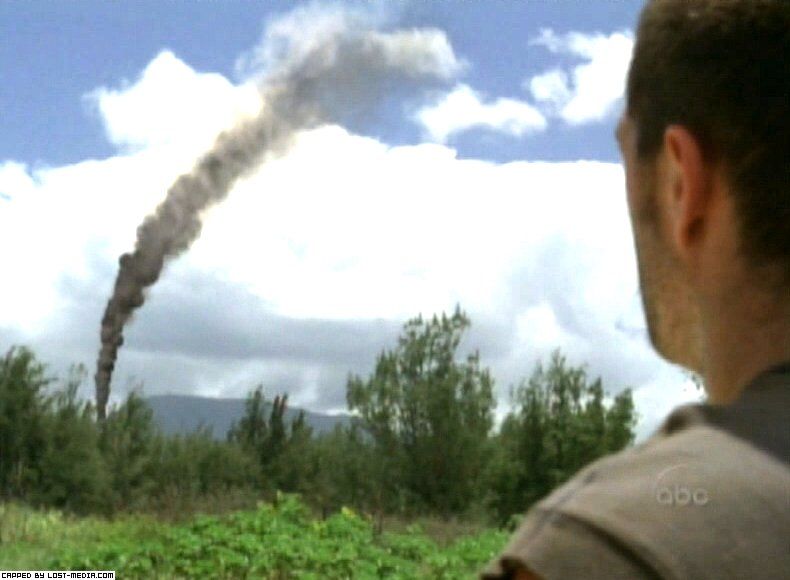
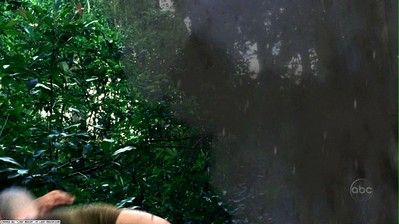
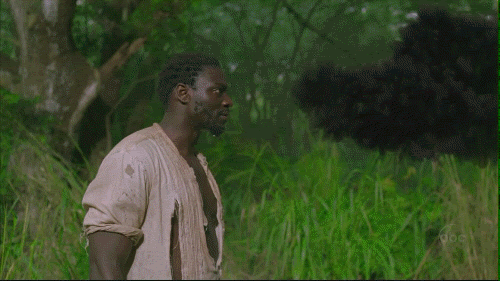
Smoke is all over this episode - in the way Arzt disappears in a puff of it, in the way the Hatch is blown, in the way the Raft is obliterated.
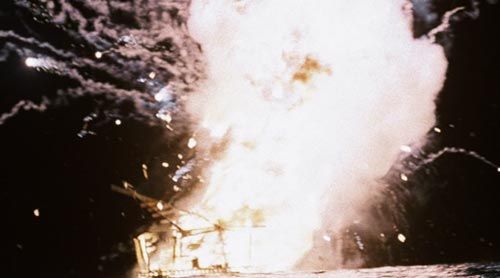
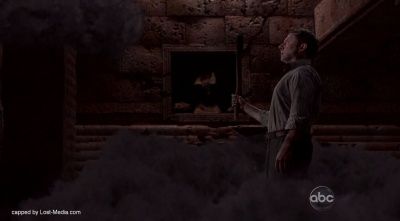
Rousseau identified the Smoke Monster as the Island's "security system". Locke had a different experience. First the Monster stared straight down into his soul through his goggle eyes, as it had in Walkabout.

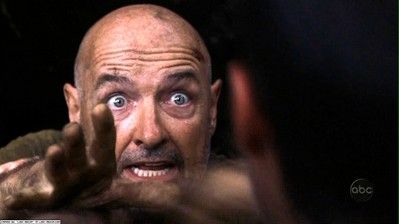
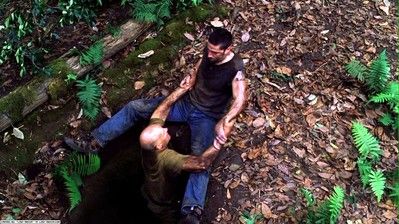
In the years since, we've come to see that Rousseau's crew had had the same experience, with a vastly different outcome.
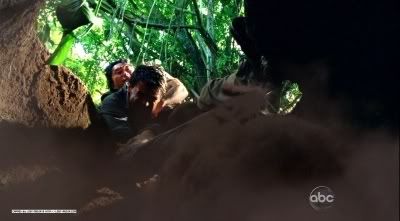
It might be a good place here to go into all the ways Rousseau's story was later illustrated for us, all the way from Montand's stray arm to the murder of her crew, but sadly there just isn't time to cram in everything that might be said about this episode. Suffice to say the writers could have made Rousseau's story consistent with the past version, but they chose for whatever reason to make it slightly different. But the tragic essence remains: one way or another The Smoke ate Rousseau's crew.
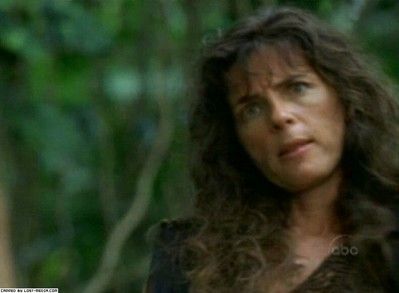
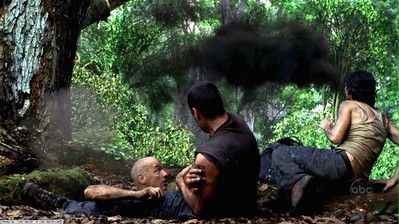
This plan worked so well for them that I wonder why they never followed through on the implications. If the Smoke Monster could be chased away by common explosives, didn't that indicate a certain vulnerability to natural forces? Or maybe I'm not giving Jack enough credit. Maybe he did remember it. Maybe deep in the back of his mind, he had retained the idea that dropping massive explosives blindly into open holes can somehow make things all right.
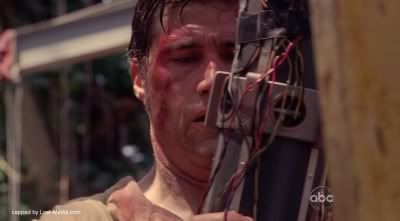
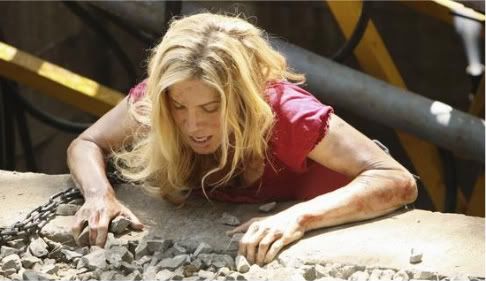
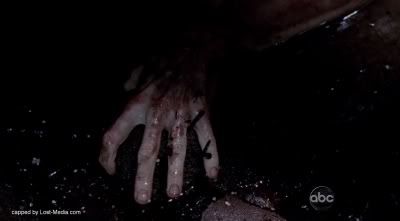
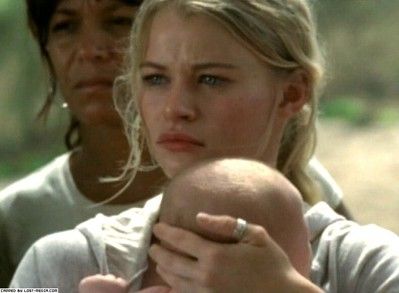

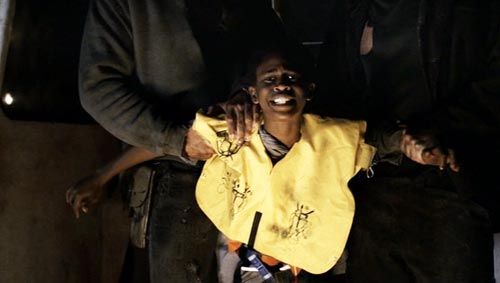
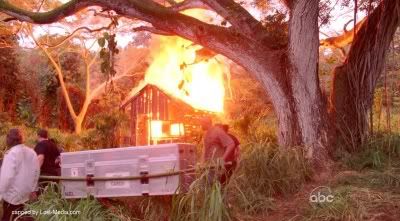
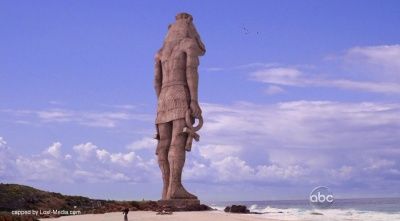
And even though we haven't been able yet to determine which god the Islanders are meant to serve, it seems pretty clear that they're being forced one by one to submit to the Will of a higher power. We can call it Destiny if we like, but it's really just semantics. The only "destiny" that Jack is learning to follow is the Destiny that the Island's higher power wants him to follow.
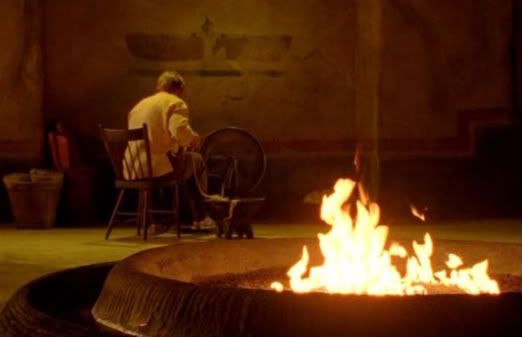 The Israelites exalted God after the Red Sea had parted for them. They celebrated the death of their enemies in the famous Song of the Sea. Another guy who sang a song about the Exodus was the great Bob Marley.
The Israelites exalted God after the Red Sea had parted for them. They celebrated the death of their enemies in the famous Song of the Sea. Another guy who sang a song about the Exodus was the great Bob Marley.
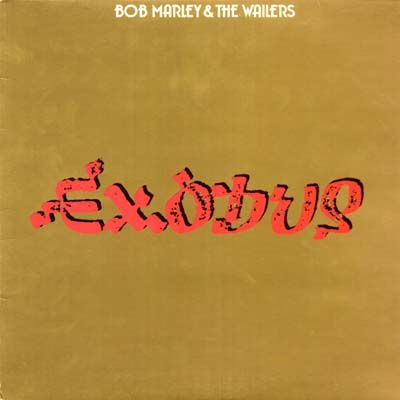
Working happily on the raft, Sawyer sang a few lines from a different Marley song, "Redemption Song".
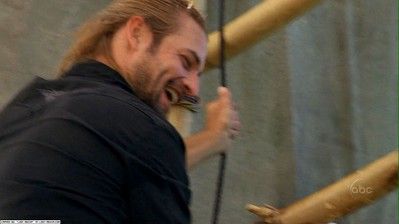
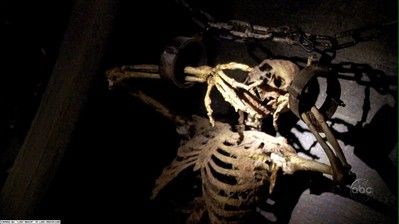
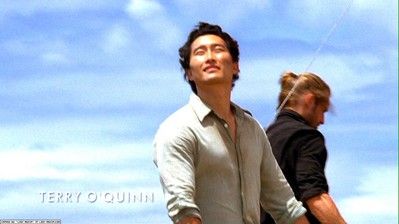
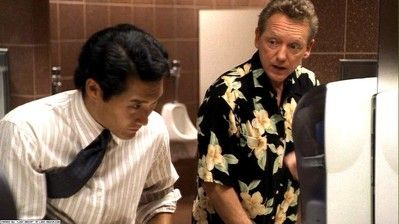
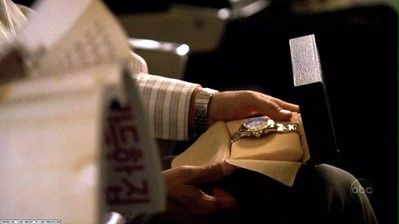
But on the raft, Jin, the man of the sea, was free - free from the Island, free from his marriage, free from duty and honor ... and free, finally, from time itself.
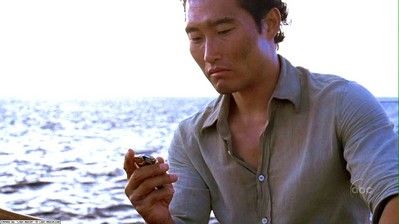
He went to Michael and handed him the notorious watch, the watch they had fought so bitterly over. It was intended no doubt as a gift, and Michael was suitably touched by his gesture, but as we've seen, that watch was far more curse than blessing. It's an odd moment to watch in retrospect. You don't know quite how to take it.
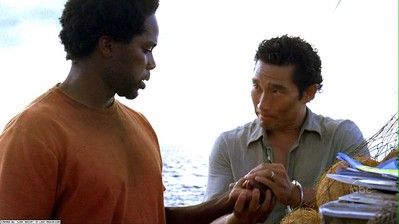
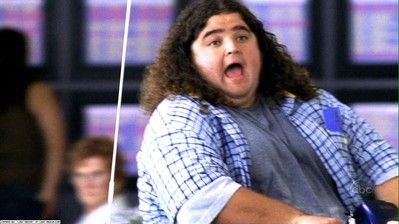
Time is one of the major, major themes of LOST - though in what way, and to what end, none of us understand. Hurley seems to be a kind of TimeMaster, the keeper of the Numbers with which we count the seconds, minutes, hours of our lives.
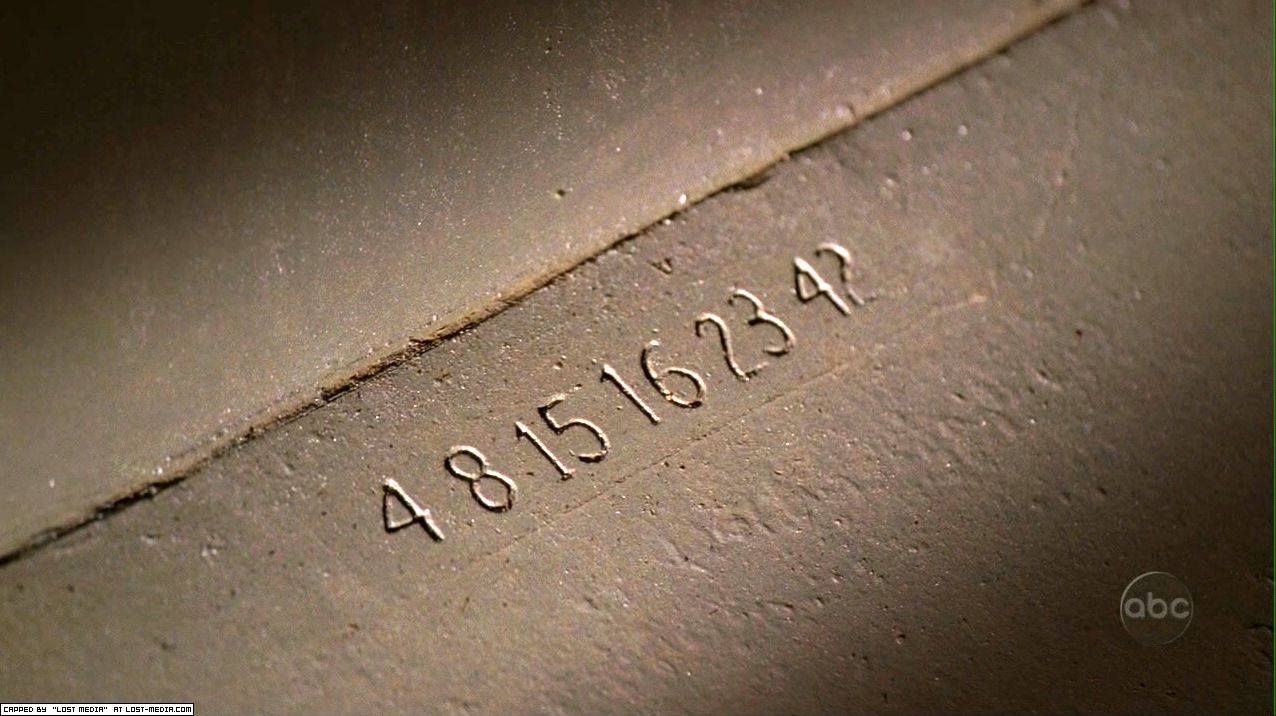
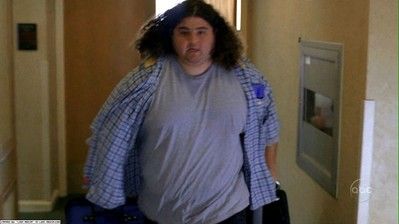
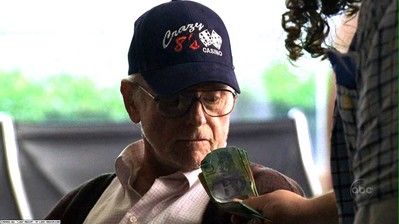
And wouldn't you just know it? Hurley's winning streak didn't run out and he made it just in time to be the last lucky person to pass through Gate 23 to board Flight 815.
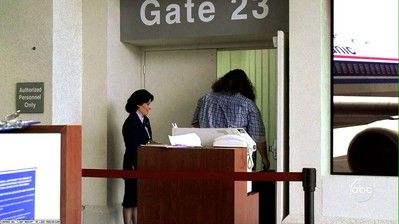
There was more to Hurley's mad dash than just LOLs and WTFs. We saw him coping with the limitations of not only Time, but Space as well, as he was forced to buy two seats to accommodate his double wideness.
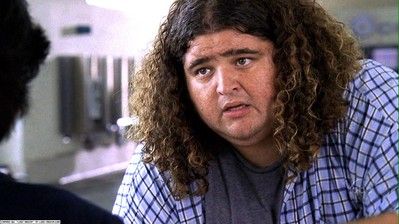
And when he explained why it was so important that he got home that very day, he let slip one of the most telling lines of the episode, though of course we all missed it then: "My mom's birthday is tomorrow. Or, today -- I don't know. I don't really get the whole time change thing, but I've got to make that flight."
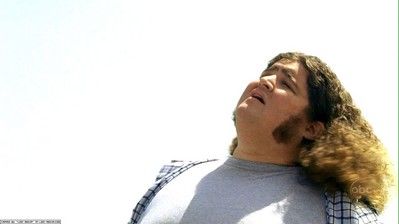
As the years have gone by on LOST, Time has loomed larger and larger as a driving force in the narrative. Obviously, we aren't operating in a linear universe, where "Tomorrow and tomorrow and tomorrow creeps in this petty pace from day to day to the last syllable of recorded time". Time doesn't start in the past and cross over the present into the future. I don't know exactly how time operates in the LOSTverse, but I'm sure it doesn't work like that. Just try to tell the story of LOST to someone else (preferably someone with a LOT of time on their hands who's a really good listener) and see how impossible it is to keep track of what came first or what caused what to happen. While we weren't looking, the scrambled storytelling of LOST has become a complete confuzzle where we can't possibly be sure - to take just one small example - if Ben became evil because Sayid shot him or if Sayid shot him because he was evil.
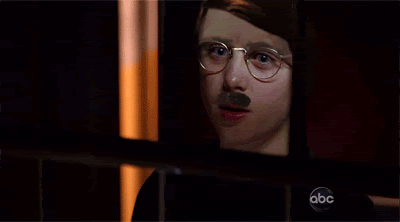
There are dozens of theories out there as to what these time travel spirals are all going to mean in the end. To make sense, to have been worth our while, it needs to tie in somehow to the other themes of the show - to the concept of Destiny and Fate and Free Will and Redemption and all that other good stuff. So, how could that possibly work?
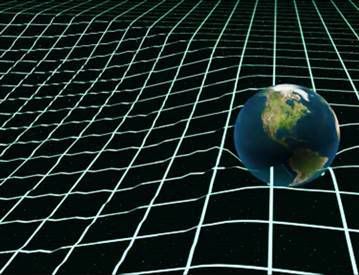
One theory that appeals to me is the Block Universe theory of time, where all points in time are relative to one another. A moment is in the past only with respect to some other moment, which we can arbitrarily call the present, but relative to some other moment in the past that same moment could just as easily be in the future. Similarly, that which we call the future can only be experienced as it exists in some moment that will exist in the present, and will be the past to some other moment we designate as future to it. I know it sounds really complicated, which is why I always like to let Billy Pilgrim explain it.
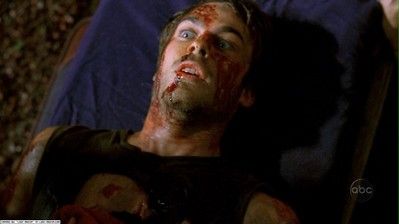
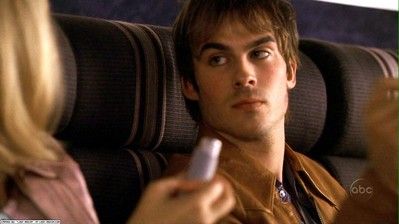
It feeds very neatly into the discussion of fate and free will that LOST has dwelled on. If all points in time are fixed, and we only traverse across them willy nilly, then there isn't much point to making choices. Is there?
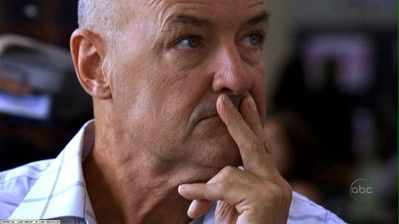
I've often thought that this, in some form or other, is where LOST is headed, but they've left themselves so many open doors, I'm no longer sure of it. There's also the idea of alternate realities, of parallel universes coexisting simultaneously, but I admit that makes even less sense to me. Which makes it all the more likely that the writers will be springing exactly that brand of mind frak on us next season. I guess we have to keep an open mind going into the finale season. What it always comes down to on LOST is learning to think outside of the box.
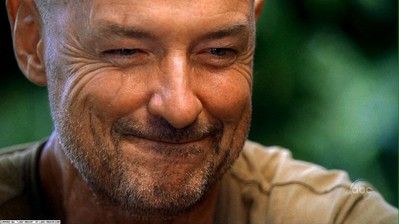
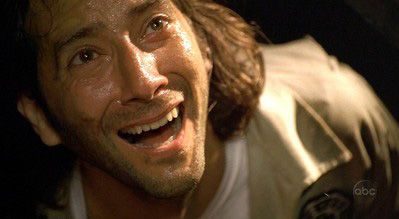
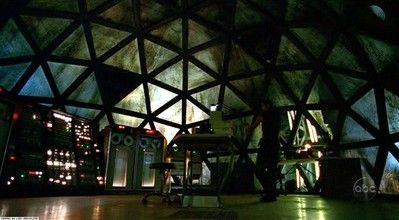

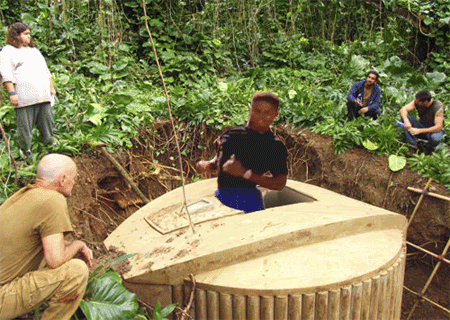
Luckily for us, they chose wisely. And considering the epic work of imagination they managed to spin out of the raw materials of Season One, it doesn't really matter that they didn't know where they were going. But it does make you wonder, as you try to read into the many motifs and themes and apparent symbols within the story: What did they know and when did they know it?

Hurley guessed that the Hatch might be filled with clean socks and hot showers and food, and whaddayaknow? He was totally right.
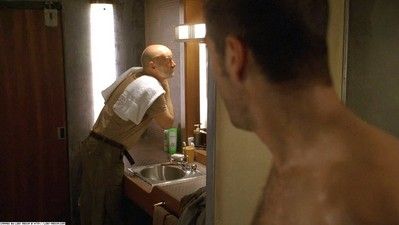
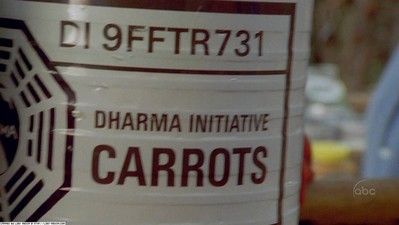
Locke believed the Hatch was filled with Hope. I'm not sure if that was just a careless remark or if it was a meaningful reference to Pandora's Box - the box that unleashed all forms of evil and pestilence upon mankind, due to the careless act of a stupid, curious girl, but which was slapped shut just in time to trap one thing inside it - Hope. It's one of mankind's many misogynist creation myths, and it kind of fits with the anti-woman vibe LOST has often adopted, but was it an intentional reference or a one off? After all, the Hope inside Pandora's Box isn't a particularly useful kind of Hope, since - you know, you're not allowed to ever open the box.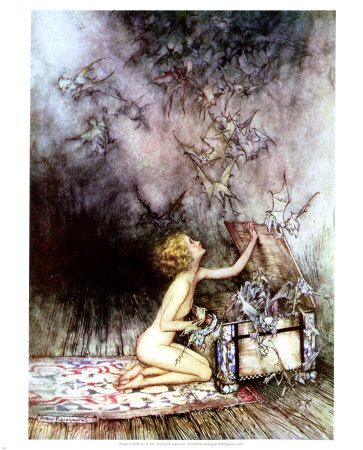
What about some of the other mysteries we've seen? In this episode we see Locke, with characteristic LOST style irony, waiting to board the plane because the airline could not find it's "special" wheelchair. Simply put, Locke pre-815 was defined as "not special". It was the Island that had made him "special". That was his whole story, right?
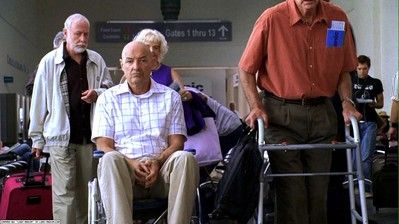
But why even in the earliest episodes, was it hinted that there was something vaguely sinister about the usually cheerful survivalist?
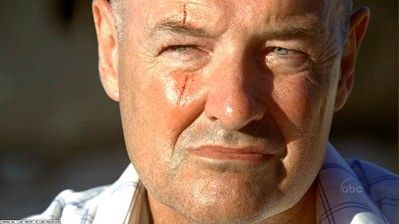
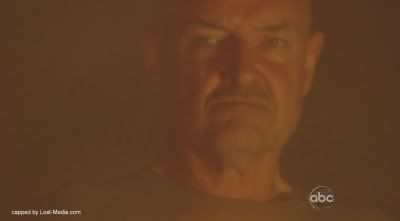

Another big question: For all the parsing and philosophizing that's been done about the meaning of black and white on LOST -
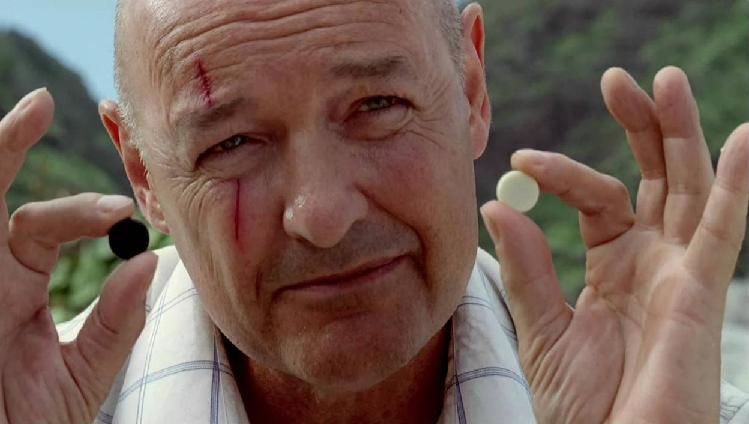
- given that this is the least morally absolute storyverse I've ever visited ... is it possible we've overlooked the most literal interpretation of black and white? The simplest one that they laid out for is in Season Five's finale.
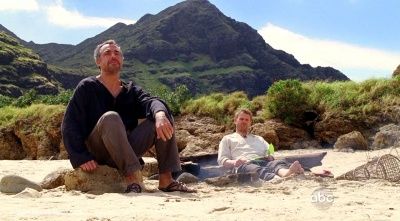
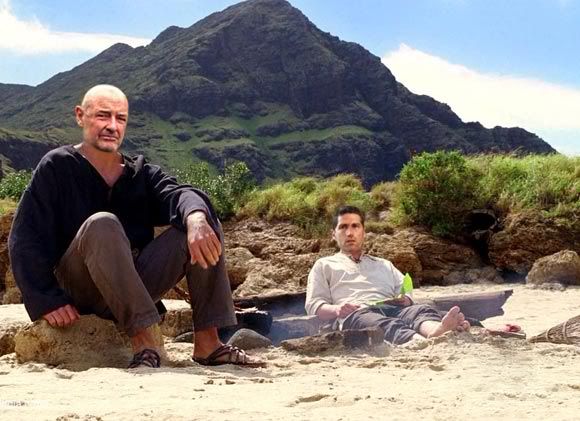
Here's another question that bugs me:
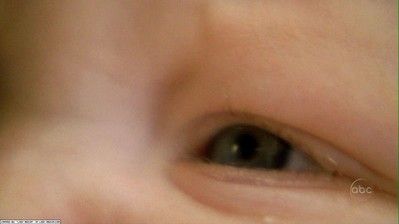
Was Aaron ever meant to be important, as he seemed to be in Season One? In the Book of Exodus, the boy child is taken from his mother and raised by another, only to return in his manhood to set his people free. Yet it seems right now that Aaron's story has been parked over in dullsville for the duration. Will we see him again? In some other form maybe? Will his story have a meaningful conclusion or was he just a useful symbol that no longer serves a purpose?
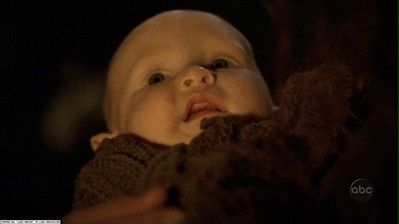
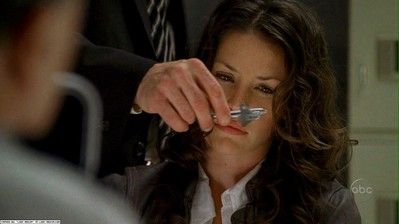
Speaking of Kate, why do the writers hate her so much? When she drew the short straw, that meant she'd be one of the two carrying the dynamite from the Black Rock to the hatch.
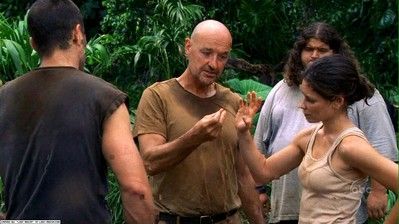
Her orders were simple. If anything bad happened, she should take off the backpack and RUN.
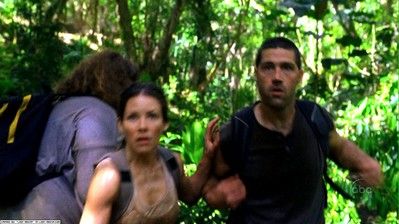
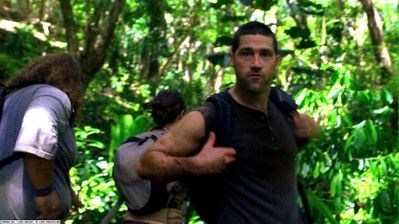
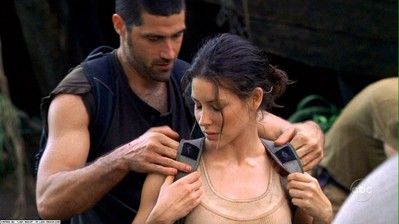
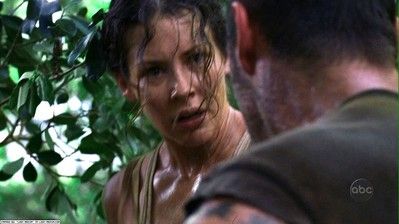
And speaking of accidents, how about this one?
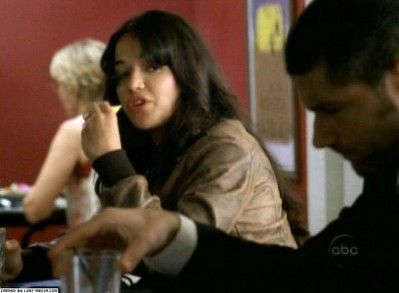
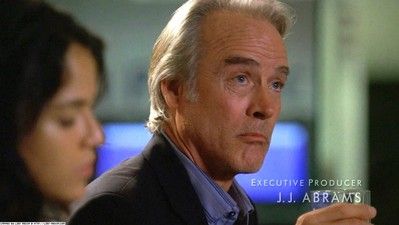
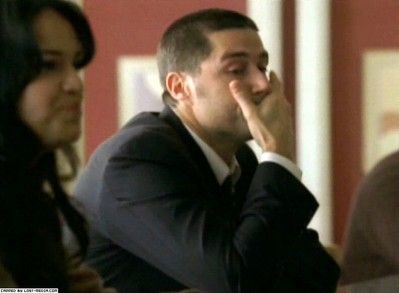
And clearly they had plans for this couple. Look at this ad campaign that they filmed between Seasons One and Two.
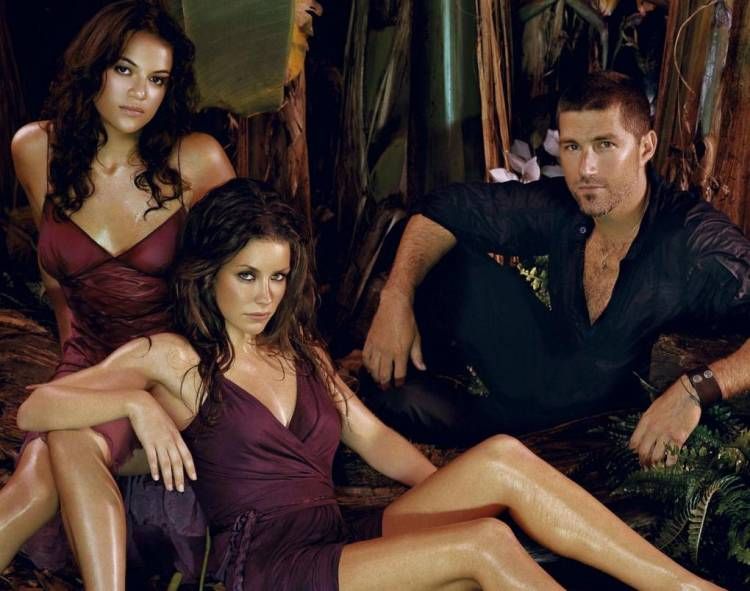
What were they going for? It made it look like Season Two was going to be about Jack having a threesome with two greasy lesbians.
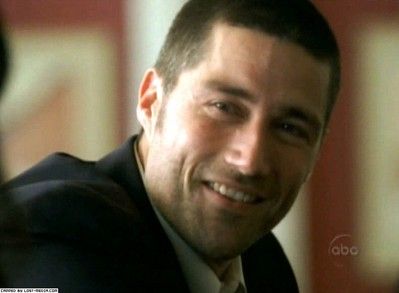
But enough with the quibbles. This was a magnificent episode and a superb capstone to an historic television season. The Book of Exodus opens with an episodic section where plague upon plague is visited upon the Egyptians, in an escalating iteration, until finally the Pharaoh gives up and allows the Chosen People to go free. This episode of Exodus borrows some of this episodic feeling by threading the various stories of the survivors through the story, showing us what each of them did in the hours and minutes before they boarded the plane.
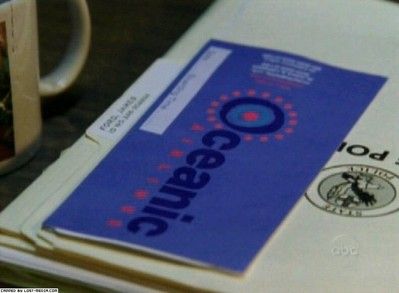
The Book of Exodus is about, more than anything else, a journey.
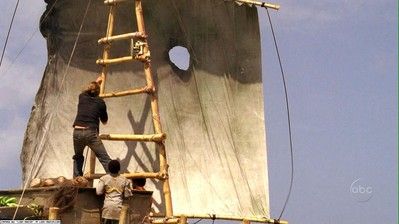
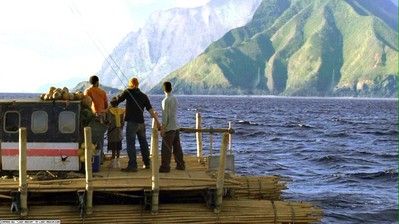
The beach crowd is traveling to the caves, to be safe from the smoke bearing Others. The gang of four on the raft is trying to escape - hopelessly it turns out - the snowglobe of the Island's immutable Will.
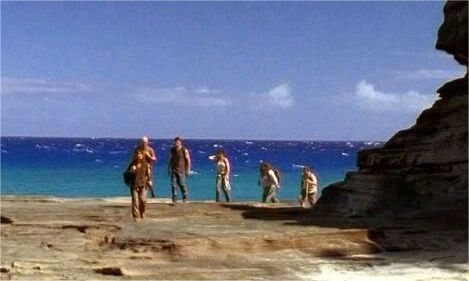
Jack's crew journeys into the jungle to find the dynamite and they discover the wreck of the Black Rock.
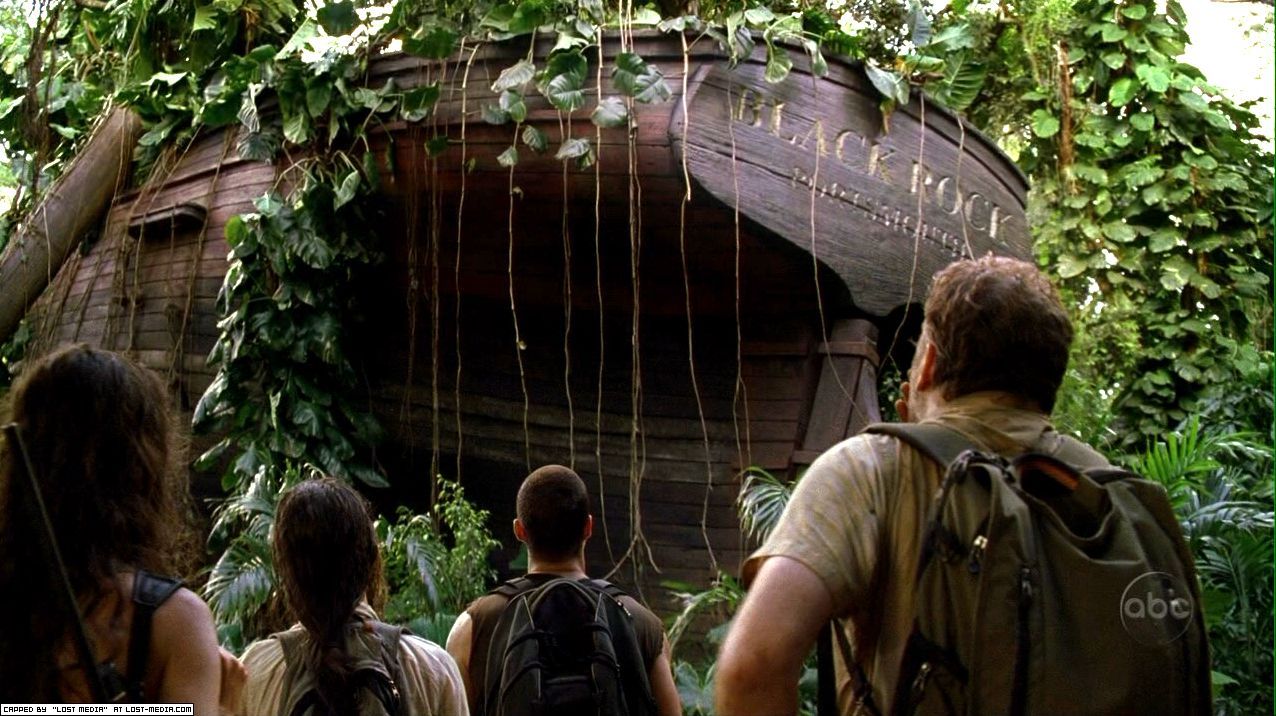

It's the kind of image that reminds us we're being told a fairy tale and that looking for any kind of logical explanation is pointless. But our minds don't rest when all we have is irrationality to work with. We're always trying to make order out of chaos. The glimpse down the hatch was the beginning of a very long journey, one that has often taken us into holes and tunnels and dark places that feel like the underworld. All of our characters are on some kind of journey, through various dark nights of the soul, towards a Promised Land that we have yet to glimpse. As this great episode ended we watched them boarding the vessel of their metamorphosis - the airship that would take them to the mystical, mythical port of call where their transformation would begin.
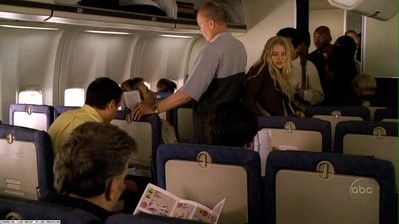
First they boarded the pregnant women, then the handicapped.
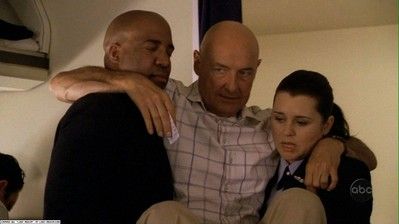
Then the outlaws being banished, one in shackles
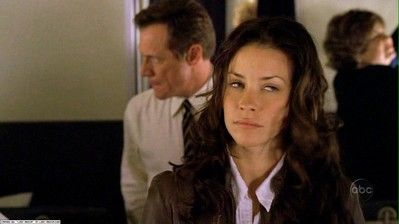
... and one whose chains were still invisible.
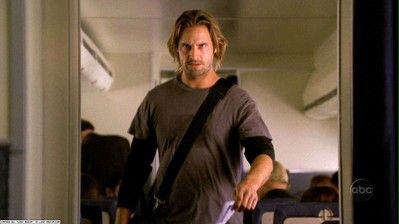
An un-blissfully wedded couple.
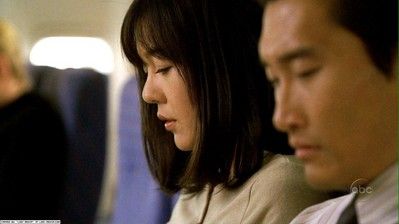
A gen-u-wine I-raqi.
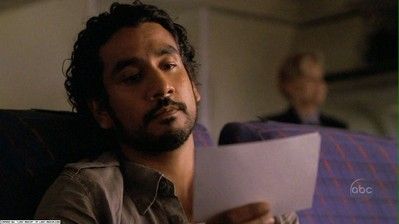
Two spoiled rich kids.
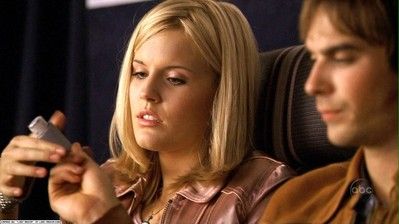
The jester.
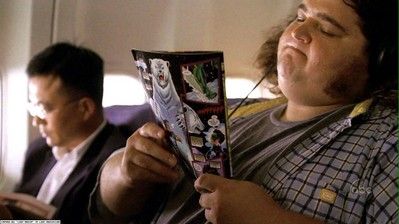
The prophet.
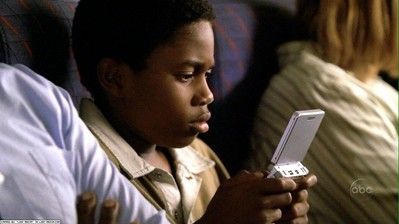
The Dad. 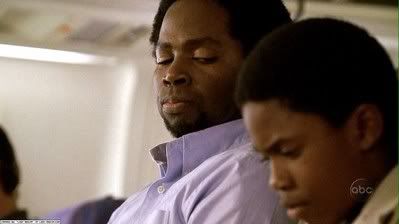
The final look that is exchanged between passengers before the plane rises into the air is fraught with future meaning.
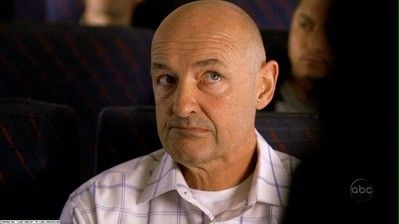
Locke looks up at Jack quizzically, maybe a bit suspiciously.
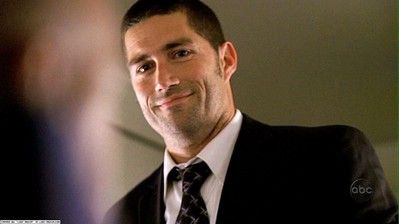
Jack smiles down at him. It's a perfectly ordinary, friendly kind of look. These two could never have guessed what kind of journey they had ahead of them, what kind of bond they'd forge, however unwillingly, in the months and years ahead. Neither could we of course. And we still can't know. As the season finally approaches - we're counting down now in mere DAYS - we're still all completely in the dark. We may know now what was at the bottom of the Hatch but where has it gotten us? Only back at that same Hatch, watching it get blown to smithereens yet again, and knowing just as much now as we did then. Which is to say - We don't know nothing. Sure some themes are firmly in place. It's a story about Time, about Destiny, about Heroes and Magic and Mystery and Adventure. Most of all, it's a Mind Game. We've gone around and around through miles of circles and we've come right back around to where it all started. A plane going up into the sky.
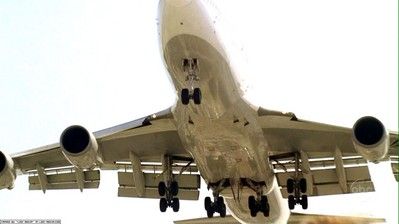
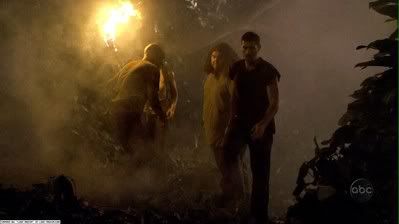
And all of us, with our mouths hanging open, scratching our heads, wondering how the hell we ever got mixed up in this crazy show.
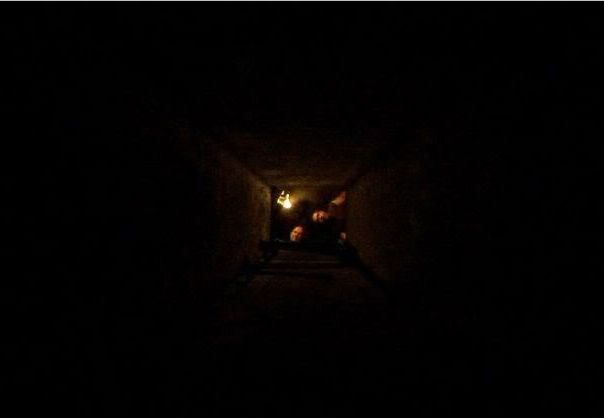 But no worries. The end is nigh. And no matter how we feel about, whether we love it or hate it or never ever understand what the hell it all was about, one thing we can count on. It's ending. And for better or worse, we've been promised: It only ends once.
But no worries. The end is nigh. And no matter how we feel about, whether we love it or hate it or never ever understand what the hell it all was about, one thing we can count on. It's ending. And for better or worse, we've been promised: It only ends once.



Aaron's first post-birth kidnapping.

The assumption of Arzt into heaven.

Smokey's first attempt to bodysnatch John Locke.



We didn't know it yet, but the great spiral of interlocking storytelling loops was beginning right then and there in the moment the Hatch was blown. It was an even bigger moment than we could ever have imagined. Like every episode in Season One, however, this one was more than just the sum of its mindblowing parts. I think of Season One as LOST B. F. - LOST Before Fanboys. Yeah, I know they existed back then, but in good old 2005, LOST was very much a mass viewing experience, a shared pop cultural phenomenon that all kinds of people could enjoy. We buzzed it about across cubicle walls and dinner tables and in queues and on barstools. It's hard to remember that now when it seems like most hardcore LOST fans have become internet exiles, each of us isolated in our laptop cells, tapping out our esoteric theories to one another on the keyboard shaped walls of our echo chambers.

We used to actually talk about LOST to other people. And it's easy to see why. Season One had mysteries and secrets and supernatural phenomena ... but far more than that, it had Heart.

It had Soul.

Above all, it had people that we could really care about. Namely these fourteen unique and irreplaceable people who had all fallen out of the sky together.

There really has never been another character on LOST that I've cared about as much as I cared about that little group. And that's probably because in Season One so much painstaking effort was taken to make them real to us, to make us care.

We watched Walt and Michael grow from angry strangers to a father and son bound by more than mere DNA. In trying to decode the mystery of his very special boy, Michael had begun to unlock the secrets to himself.

Walt gave Michael's life a meaning it had never had before. It ennobled him and made him want to do great deeds. We know now it ended disastrously, with Michael being driven first crazy, then dead, and we know that in spite of all the love that grew between them, Michael's pre-flight plea to his mother to take this awful kid off his hands
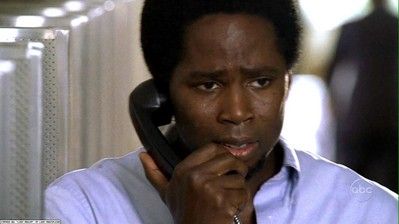
is exactly how it all turned out anyway.


All during Season One this had been one daddy issue that seemed to be headed for a happy ending. Alas, like so many hoped for happy endings on LOST, it was never meant to be.

Jin and Sun's brittle marriage had shattered before our eyes into a million tiny papercuts of missed communication.

But Sun knit it back together with the book of translation she made for Jin as he was leaving on the raft.

There were tearful apologies and a final kiss before the Kwon marriage of misfortune began another hopeless separation.

Shannon first encountered Sayid as a generically suspicious Arab leaving his baggage near her chair,

and she did her patriotic post 9/11 duty by reporting him to the authorities.

But a few weeks later, her safe, snotty world had evaporated around her. Now it was Sayid she was depending on to help her cope with her mounds of baggage - both the literal and the metaphorical kind.


But we'd watched him evolve, watched him kick his habit, watched him become a real blood and guts hero-man,

watched him evolve into the kind of grown up who would risk his own life to protect a young madonna and her helpless babe.

Of course Claire wasn't the only Madonna that Charlie was in love with,

and as the season ended we knew that this very human love triangle still had a lot more story left to give.

Jack's progress towards becoming the Supreme Leader of the survivors was the most predictable story arc, but it was coherent and also real. People had sought psychological shelter under the umbrella of the AMA approved Captain America, and he had truly grown into the role.

He was even able to deal diplomatically with a schnook like Dr. Leslie Arzt, professor emeritus of Kabloom College.


Sawyer's story arc, on the other hand, was the opposite of predictable.

He had subtly but miraculously morphed over the course of the season from a self centered asshole and destroyer of families

to the kind of shining knight who would take a bullet for another man's child. He claimed that "I ain't no hero" but only the flattest interpretation would agree with that.

He proved his worth to his shipmates by cutting the mast for them swiftly in their hour of need. Once on board the raft, he dove overboard without a second thought to salvage the rudder.

And all that was even before he got shot trying to save Walt or swam through shark infested waters to help Michael. It's always strange to me when I read descriptions of Wimpy Jim the Flower from Season Five as if that was somehow the "heroic" version of Sawyer, as if he'd just suddenly stopped being an asshole when he put on a stay-prest Dharma jumpsuit and ironed his hair flat.

The complex and colorful part of Sawyer's hero's journey had begun years and years before, in the earliest episodes of LOST, and it has spanned all the seasons. It's mind boggling to me that so many managed to miss it for so long.


Sawyer told the story of the night he'd met a masochistic Boston Red Sox fan in a Sydney bar (leaving out the whole mistake murder part that came after) and how Christian had cried in his rotgut, wishing he'd told his wonderful doctor son how much he loved him.

Jack pinched back tears and finally melted down into all out man-jears bawling over the lost chance he'd never have to forgive his dear old drunken Dad. It was without a doubt LOST's gayest scene ever.

First Season Sawyer was so unspeakably HOT that I think even Jack was checking him out.

See what I mean?

But for truly iconic moments, nothing can compare to the Man of Science and the Man of Faith facing down for LOST's most profoundly seminal conversation.
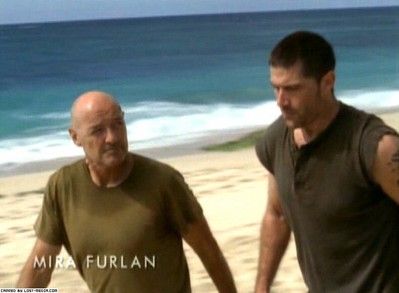
Jack and John, the same named pair at the core of the story, together form the two halves of LOST's true OTP - One True Protagonist.
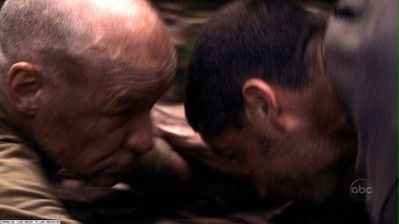 Neither carries the story alone and neither makes much sense without the other. Their discussion just before opening the hatch may well turn out to contain the whole story of LOST in its nutshell.
Neither carries the story alone and neither makes much sense without the other. Their discussion just before opening the hatch may well turn out to contain the whole story of LOST in its nutshell.
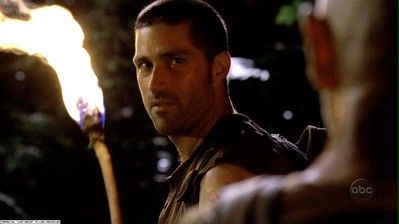



LOCKE: Do you think we crashed on this place by coincidence -- especially, this place? We were brought here for a purpose, for a reason, all of us. Each one of us was brought here for a reason.
JACK: Brought here? And who brought us here, John?
LOCKE: The island. The island brought us here.

LOCKE: Boone was a sacrifice that the island demanded. What happened to him at that plane was a part of a chain of events that led us here -- that led us down a path -- that led you and me to this day, to right now.
JACK: And where does that path end, John?
LOCKE: The path ends at the hatch. The hatch, Jack -- all of it -- all of it happened so that we could open the hatch.

JACK: I don't believe in destiny.
LOCKE: Yes, you do. You just don't know it yet.

This conversation felt, at that given point in time, like the distillation of what LOST was going to be about - faith, fate and the eternal question of whether or not there exists such a thing as free will. Years later, and many meandering plot lines under the bridge, it all feels much less clear to me than it did back then. Jack, circa Season One, did not believe in Destiny. Jack, circa Season Five, had so much blind faith in Destiny that he was willing to drop a hydrogen bomblet into a hole beneath his feet just because the Destiny Fairy told him to. I have to admit I don't get it.

What happened to create this sea change? Sure, Jack became convinced along the way that the Island he'd crash landed on was magical and mystical and not beholden to the laws of the physical universe. But how was that a difficult conclusion? I mean, I think we all realized that around the time Christian Shephard first appeared under the banyan tree in Walkabout. Or maybe even earlier, when the Pilot ended up on the ceiling of the jungle, ripped to bloody shreds. So Jack finally came around to accepting what should have been obvious to a slightly intelligent five year old. Good for him. But where's the philosophical analysis and deconstruction of the meaning of Destiny in all that? How is any of it about Jack's Destiny, since the same otherworldly mind frak is happening to everyone else at the same time? Perhaps that is the question they've been waiting to dig into in Season Five. And if the whole thing is about Destiny, then what exactly does the concept of Destiny mean? What does it mean within the context of LOST?
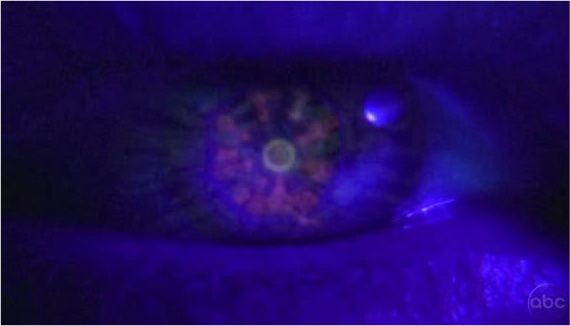
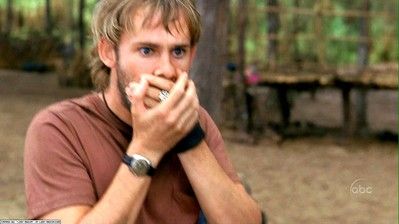 But such an idea is unacceptable to our psyches. We refuse to even consider the possibility that all of the decision making and contemplating and opinionating we fill our lives with is fundamentally irrelevant.
But such an idea is unacceptable to our psyches. We refuse to even consider the possibility that all of the decision making and contemplating and opinionating we fill our lives with is fundamentally irrelevant.
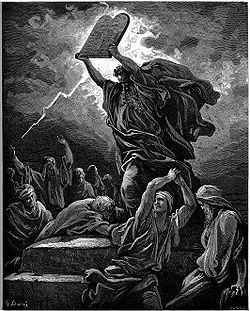
In ancient times, mankind didn't dwell too much on the complications of this question. They made it simple. Instead of Destiny, they put their faith in the unalterable Will of God. People had free will - they could either choose to obey the Will of God, and be rewarded forever in the land of milk and honey, or they could choose to transgress against the Will of God, and enjoy a nice long vacation in the fiery pits of hell. I'm really not sure if "free" applies to this kind of choice, but that's as far as the old timers cared to think it through. For them all the free choice belonged to God, and it was up to him to pick which people he'd designate as The Chosen Ones.

The concept of Destiny dictates that the future is fixed and immutable. Free Will is irrelevant, since it is always the predestined future that determines what must happen in the past. Since only one outcome is possible, all the illusions of choice and free will that bring us to that outcome are fated and predetermined. We only feel like autonomous beings in a world where Destiny rules. In point of fact, we are never anything more than Destiny's puppets.




This episode is filled with winks and nods to the great Book. First of all, and most obviously, this was the episode where Aaron receives his name. Claire first blurts it out almost as if someone else is speaking through her. She tells Sun she doesn't know what it means, and the implication is that she doesn't know why she has chosen it. It's almost like her baby was destined to be named Aaron, which would be all the more ironic given that Claire states plainly that Destiny is something that she, like her brother from another mother, doesn't believe in. But in the Old Testament, whatever else the name may mean, Aaron is the faithful and ever helpful brother of Moses, the great hero of the Book of Exodus.



God appointed Moses to lead the Israelites by speaking to him through the Burning Bush, a flaming bush that never burned up. Rousseau explains away her scratches (scratches we now know she'd gotten trying to rescue a drugged up kidnapped Claire from Ethan) as scars from a Bush.
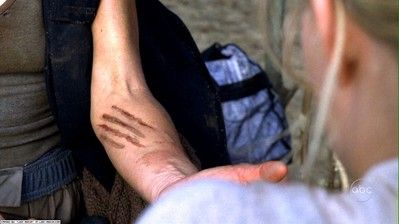

Once the Israelites were given the ok to head out across the Red Sea, the Lord took on the form of "pillar of smoke" to lead them along the way.

It wasn't just that the Israelites were being led by a smoke signal. God himself was the Pillar of Smoke. When Moses had a question or something, The Smoke would come over and talk things over with him.
And all the people saw the smoky pillar stand at the tabernacle door: and all the people rose up and worshipped, every man at his tent door. And the Lord spake unto Moses face to face, as a man speaketh unto his friend. - Exodus 33: 10-11

The column of smoke looked ominous on the horizon and it convinced Jack in a heartbeat that all the people on the beach had to be hidden away somehow. It turned out in the end that Rousseau had probably manufactured the smoke herself, to fake the scenario that allowed her to snatch Baby Aaron. But putting it here, a "pillar of smoke" in an episode named Exodus, was an early reference to the fact that Smoke is the form that bodiless deities like to assume on LOST, at least when they're trying to cover a lot of ground quickly.

Or when they're in a mood to show off their full power and glory.

Smoke is all over this episode - in the way Arzt disappears in a puff of it, in the way the Hatch is blown, in the way the Raft is obliterated.

Smoke is a destroyer, but on LOST, as in the Bible, Smoke is also the chosen incarnation of The Lord.

Rousseau identified the Smoke Monster as the Island's "security system". Locke had a different experience. First the Monster stared straight down into his soul through his goggle eyes, as it had in Walkabout.

Then it tried desperately to drag him into its lair and devour him. But the really strange thing is - Locke wanted to go!

He kept telling Jack to let him go, that he'd "be alright." It was like he already knew he belonged down there with that thing, that his Destiny was to join with the Smoke.

In the years since, we've come to see that Rousseau's crew had had the same experience, with a vastly different outcome.

It might be a good place here to go into all the ways Rousseau's story was later illustrated for us, all the way from Montand's stray arm to the murder of her crew, but sadly there just isn't time to cram in everything that might be said about this episode. Suffice to say the writers could have made Rousseau's story consistent with the past version, but they chose for whatever reason to make it slightly different. But the tragic essence remains: one way or another The Smoke ate Rousseau's crew.

"I had no choice. They were already lost. What would have happened if we were rescued? I couldn't let that happen. I won't."Jack was more successful than Rousseau in freeing his man. He had the bright idea to drop a stick of dynamite down the hole ... which miraculously caused the Smoke Monster to race through its tunnels and flee back out into the jungle sky.

This plan worked so well for them that I wonder why they never followed through on the implications. If the Smoke Monster could be chased away by common explosives, didn't that indicate a certain vulnerability to natural forces? Or maybe I'm not giving Jack enough credit. Maybe he did remember it. Maybe deep in the back of his mind, he had retained the idea that dropping massive explosives blindly into open holes can somehow make things all right.

The next time we saw Jack near a hole with explosive in hand, it was Juliet who was getting sucked in.

But it wasn't Smokey who was pulling at her and she didn't want to be let go to meet her Destiny and I'm pretty sure, though we don't know for sure, that whatever blew up in that hole didn't set her free. A familiar theme was reprised in Juliet's death scene but the stakes had risen. Both the holes and the firepower have changed in scale over the past five years.

Smoke is not the only common element between the Book of Exodus and this episode called Exodus. Rousseau stole Aaron allegedly because she wanted to protect him from the Others who, she warned, were coming "to take the boy".


To keep him from being kidnapped, she kidnapped him herself. But there was never any threat to Aaron. It was a different boy the Others wanted to take. It was Walt.

Walt's heartrending cries for "Dad!" to rescue him, as his Dad could do nothing but stand by impotently, stuck with me longer than the mystery of the Hatch. Nothing horrifies more than the sight of a child ripped from a parent's arms to a dreadful fate. And in the first third of the Book of Exodus, that's what it all came down to - the taking of the boys.
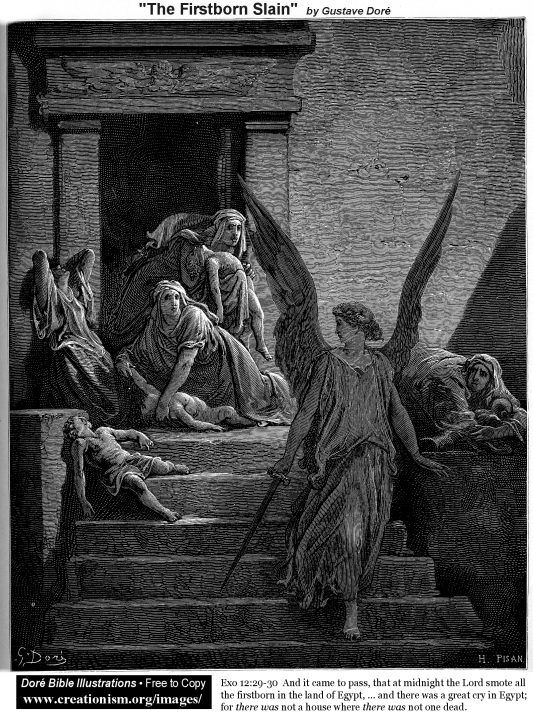
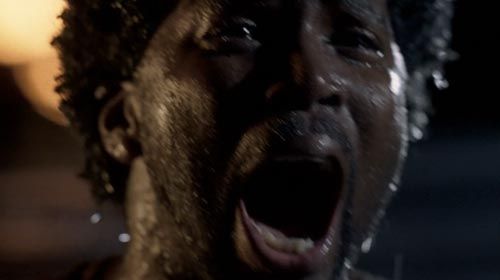
The Old Testament God was a fearsome, heartless God of draconian lawgiving and smiting and punishments and damnation. And yet the story of the Israelites is that, through the suffering they endured in their long exile, they came to worship and exalt him. They built him a tabernacle, the Ark of the Covenant, to carry His laws that they'd sworn to uphold.

"That same night I will pass through Egypt and kill the first-born son in every family and the first-born male of all animals. I am the Lord, and I will punish the gods of Egypt." - Exodus 12:12The Old Testament is a tale dripping with blood and gore. When Pharaoh refused to let the Israelites go, the Lord connived with Aaron to mess with his head. The Egyptians were afflicted with boils and lice and blood pouring out of the sky like rain, but it wasn't until the Lord commanded the angel of death to slaughter the firstborn males of each Egyptian family that Pharaoh's heart was finally turned. Of all the loathsome plagues that the Egyptians were willing to endure, it was only the loss of all the little boys that was too much to bear.


Over time, they built temples and created rituals of worship and servitude to the Will of the Lord. We've seen that this happened on Craphole Island as well. The mystery of the Temple is still half baked, but it's one I'm sure they'll return to. In whose name did they erect such spectacular idols?



Working happily on the raft, Sawyer sang a few lines from a different Marley song, "Redemption Song".

The theme of Redemption seemed so important in Season One, especially for a character like Sawyer, who had murdered but was becoming a better man before our very eyes. I think they lost track of this theme over the later seasons, because all moral distinctions in this story have become hopelessly muddled. I can't think of a single character on this show that I'd classify as either "Good" or "Bad". Sort-of-good guys have received the ultimate punishment.
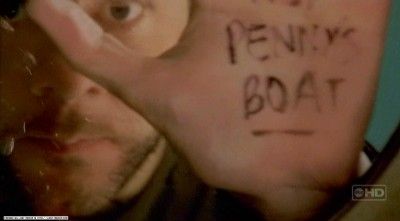
Sort-of-bad ones have gotten off mostly scot free.
 I can't even think what redemption would mean anymore for most of them. Perhaps it will come back around somehow. Or maybe they're going for something entirely different. In "Redemption Song", the singer is seeking the redemptive power of freedom - not freedom from his own sins, but from the sins of his oppressor.
I can't even think what redemption would mean anymore for most of them. Perhaps it will come back around somehow. Or maybe they're going for something entirely different. In "Redemption Song", the singer is seeking the redemptive power of freedom - not freedom from his own sins, but from the sins of his oppressor.

Sort-of-bad ones have gotten off mostly scot free.


Old pirates, yes, they rob I;We have yet to learn the story of the Black Rock, of the slaves that were on it, how they were brought there, whether some of them lived, and maybe thrived, and maybe became the ancestors of those we know now as The Others. But we did see people trying to break free.
Sold I to the merchant ships,
Minutes after they took I
From the bottomless pit. - Redemption Song

These songs of freedomBefore boarding the plane, Jin has a very unpleasant encounter with a creepy dude in the men's room.
Are all I ever heard. - Redemption Song

No, not that kind of unpleasant encounter. The creep was a paid hack of Mr. Paik's, who spoke Korean to warn Jin not to try and exercise any free choice about the mission he'd been given to perform. He told him in no uncertain terms: "You will never be free."

But on the raft, Jin, the man of the sea, was free - free from the Island, free from his marriage, free from duty and honor ... and free, finally, from time itself.

He went to Michael and handed him the notorious watch, the watch they had fought so bitterly over. It was intended no doubt as a gift, and Michael was suitably touched by his gesture, but as we've seen, that watch was far more curse than blessing. It's an odd moment to watch in retrospect. You don't know quite how to take it.

The ultimate fearsome, merciless Lord, always demanding his Will be done, is Father Time.


On the morning he boarded Flight 815, time betrayed him - his alarm clock didn't go off and it made him frantically, hilariously late.

His race against the clock gave us one of LOST's cleverest sequences ever, as we saw his lucky Numbers appear on everything from the odometer of his rented car to (my absolute favorite) the uniforms of a girls' soccer team.


Hurley left his hotel room 2342, stampeded through the airport like an elephant, and finally bought himself a scooter from a lucky guy wearing a Crazy 8's hat, for the bargain price of $1,600.

And wouldn't you just know it? Hurley's winning streak didn't run out and he made it just in time to be the last lucky person to pass through Gate 23 to board Flight 815.

There was more to Hurley's mad dash than just LOLs and WTFs. We saw him coping with the limitations of not only Time, but Space as well, as he was forced to buy two seats to accommodate his double wideness.

And when he explained why it was so important that he got home that very day, he let slip one of the most telling lines of the episode, though of course we all missed it then: "My mom's birthday is tomorrow. Or, today -- I don't know. I don't really get the whole time change thing, but I've got to make that flight."

As the years have gone by on LOST, Time has loomed larger and larger as a driving force in the narrative. Obviously, we aren't operating in a linear universe, where "Tomorrow and tomorrow and tomorrow creeps in this petty pace from day to day to the last syllable of recorded time". Time doesn't start in the past and cross over the present into the future. I don't know exactly how time operates in the LOSTverse, but I'm sure it doesn't work like that. Just try to tell the story of LOST to someone else (preferably someone with a LOT of time on their hands who's a really good listener) and see how impossible it is to keep track of what came first or what caused what to happen. While we weren't looking, the scrambled storytelling of LOST has become a complete confuzzle where we can't possibly be sure - to take just one small example - if Ben became evil because Sayid shot him or if Sayid shot him because he was evil.



"The most important thing I learned on Tralfamadore was that when a person dies he only appears to die. He is still very much alive in the past, so it is very silly for people to cry at his funeral. All moments, past, present and future, always have existed, always will exist. The Tralfamadorians can look at all the different moments just that way we can look at a stretch of the Rocky Mountains, for instance. They can see how permanent all the moments are, and they can look at any moment that interests them. It is just an illusion we have here on Earth that one moment follows another one, like beads on a string, and that once a moment is gone it is gone forever. - Slaughterhouse Five


I've often thought that this, in some form or other, is where LOST is headed, but they've left themselves so many open doors, I'm no longer sure of it. There's also the idea of alternate realities, of parallel universes coexisting simultaneously, but I admit that makes even less sense to me. Which makes it all the more likely that the writers will be springing exactly that brand of mind frak on us next season. I guess we have to keep an open mind going into the finale season. What it always comes down to on LOST is learning to think outside of the box.

Emancipate yourselves from mental slavery;Speaking of boxes, and of atomic energy, and of time, it all brings us back around to the place this story has so often returned to: The Swan Hatch. When that hatch was opened at the end of the episode, and LOST's gigantic Season One audience realized they were going to be kept on edge for months before they'd learn what was inside, there was a collective howl of frustration that you probably could have heard out on the street if you'd listened for it. It's different for us now. We know that this guy was down there.
None but ourselves can free our minds.
Have no fear of atomic energy,
Cause none of them can stop the time.- Redemption Song

And he lived in this really cool geodesic dome thingy that he wasn't allowed ever to leave.

And we know that after they found out what was in the Hatch ... well, then a whole lot of other stuff happened. You might want to go get a cup of coffee right about now, because this is gonna take a few minutes:

It's interesting to read J. J. Abrams confession now that they never did know what they were going to make the hatch be all about.
"...But truthfully, when we started it, we didn’t know exactly what was in the hatch. We had ideas, but we didn’t know to what extent it would be. The notion of The Others was there, but we didn’t know exactly what that would mean. Damon hadn’t come up with the idea of flash forwards yet. To see where we are and what they’ve created is insanely gratifying and it’s something that no one could have predicted, at the beginning of it. The evolution of it is really part of their glorious experiment of taking a show that we were all, at the beginning, saying, “How do you make this a series?”Do you realize what that statement means? They really were making it up as they went along! They could have done anything with that Hatch!

Luckily for us, they chose wisely. And considering the epic work of imagination they managed to spin out of the raw materials of Season One, it doesn't really matter that they didn't know where they were going. But it does make you wonder, as you try to read into the many motifs and themes and apparent symbols within the story: What did they know and when did they know it?


Except for the Twinkies. I don't think the DI ever made Twinkies.



But why even in the earliest episodes, was it hinted that there was something vaguely sinister about the usually cheerful survivalist?

What had happened to him during his face to face encounters with the Smoke Monster? Why was he so sure he would be alright if Jack let him be sucked into the underground chamber? Was Locke always someone other than Locke? Have we been tricked by an illusion all along?

I mean we all know Locke isn't Locke anymore, but seriously - was he ever?

Another big question: For all the parsing and philosophizing that's been done about the meaning of black and white on LOST -

- given that this is the least morally absolute storyverse I've ever visited ... is it possible we've overlooked the most literal interpretation of black and white? The simplest one that they laid out for is in Season Five's finale.

A color code. Twinship. Yin and Yang. The opposites that exist only in relation to, in tension with, one another. The two forces, brothers even, neither one morally quantifiable, that vie for control of their common magical Island home. I had posed this in a recap once, purely as a joke, but is it possible we really are headed for something like this?


Was Aaron ever meant to be important, as he seemed to be in Season One? In the Book of Exodus, the boy child is taken from his mother and raised by another, only to return in his manhood to set his people free. Yet it seems right now that Aaron's story has been parked over in dullsville for the duration. Will we see him again? In some other form maybe? Will his story have a meaningful conclusion or was he just a useful symbol that no longer serves a purpose?

I mean, it's not as if LOST has any problem discarding symbols once they've passed their expiration date. Take Kate's plane for instance.
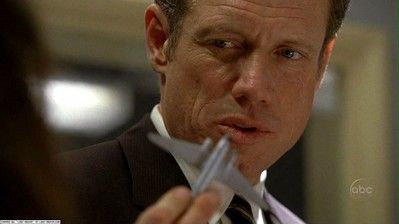 It was so freaking important in Season One. Don't you ever wonder where it is now? Does Kate carry it around in her pocket, like Jack's Adam and Eve stones? Will it turn up someday for a big Oh, Snap! moment? Or did they just decide it was too stupid to mention again?
It was so freaking important in Season One. Don't you ever wonder where it is now? Does Kate carry it around in her pocket, like Jack's Adam and Eve stones? Will it turn up someday for a big Oh, Snap! moment? Or did they just decide it was too stupid to mention again?


Speaking of Kate, why do the writers hate her so much? When she drew the short straw, that meant she'd be one of the two carrying the dynamite from the Black Rock to the hatch.

Her orders were simple. If anything bad happened, she should take off the backpack and RUN.

OK, so something terrible ended up happening. Naturally. And what did she do? Kate - who we'd once been led to believe was a savvy, tough survivor - ran like a bat out of hell with the damn TNT-pack still on her back.

It didn't really matter, because St. Jack had chivalrously tricked her, apparently assessing correctly that she had the intellect of a sea urchin, and had shouldered the dynamite himself.

So, my question is, did the writers intend to portray Kate, their lead female character, as a total bleeding idiot? Or was that just another happy accident?

And speaking of accidents, how about this one?

Ah, the stillborn "romance" of Jack and Ana-Lucia. Their meeting at the airport bar took on some interesting echos in Season Two when we learned that this was actually the second time Ana had shared a drink with a Dr. Shephard at Sydney Airport.

But their chemistry was so awkward, so downright weird, that one has to wonder what exactly the producers were thinking.


What were they going for? It made it look like Season Two was going to be about Jack having a threesome with two greasy lesbians.

But enough with the quibbles. This was a magnificent episode and a superb capstone to an historic television season. The Book of Exodus opens with an episodic section where plague upon plague is visited upon the Egyptians, in an escalating iteration, until finally the Pharaoh gives up and allows the Chosen People to go free. This episode of Exodus borrows some of this episodic feeling by threading the various stories of the survivors through the story, showing us what each of them did in the hours and minutes before they boarded the plane.


The Israelites travel across the desert for the entire Book of Exodus, and by the end of that Book, they have not arrived. There is no destination reached, only a long, long journey undertaken. In this episode of LOST, there is much journeying being done.

The beach crowd is traveling to the caves, to be safe from the smoke bearing Others. The gang of four on the raft is trying to escape - hopelessly it turns out - the snowglobe of the Island's immutable Will.

Jack's crew journeys into the jungle to find the dynamite and they discover the wreck of the Black Rock.

This was one of the most magical moments of the episode for me, the sight of a great schooner marooned and wrecked so far inland. How could that have happened? It can only be explained through some kind of sorcery. It reminds me of Chris Van Allsburg's wonderful book The Wreck of the Zephyr, where a young man's sailboat takes flight before crashing miles inland on a hillside.

It's the kind of image that reminds us we're being told a fairy tale and that looking for any kind of logical explanation is pointless. But our minds don't rest when all we have is irrationality to work with. We're always trying to make order out of chaos. The glimpse down the hatch was the beginning of a very long journey, one that has often taken us into holes and tunnels and dark places that feel like the underworld. All of our characters are on some kind of journey, through various dark nights of the soul, towards a Promised Land that we have yet to glimpse. As this great episode ended we watched them boarding the vessel of their metamorphosis - the airship that would take them to the mystical, mythical port of call where their transformation would begin.

First they boarded the pregnant women, then the handicapped.

Then the outlaws being banished, one in shackles

... and one whose chains were still invisible.

An un-blissfully wedded couple.

A gen-u-wine I-raqi.

Two spoiled rich kids.

The jester.

The prophet.

The Dad.

The final look that is exchanged between passengers before the plane rises into the air is fraught with future meaning.

Locke looks up at Jack quizzically, maybe a bit suspiciously.

Jack smiles down at him. It's a perfectly ordinary, friendly kind of look. These two could never have guessed what kind of journey they had ahead of them, what kind of bond they'd forge, however unwillingly, in the months and years ahead. Neither could we of course. And we still can't know. As the season finally approaches - we're counting down now in mere DAYS - we're still all completely in the dark. We may know now what was at the bottom of the Hatch but where has it gotten us? Only back at that same Hatch, watching it get blown to smithereens yet again, and knowing just as much now as we did then. Which is to say - We don't know nothing. Sure some themes are firmly in place. It's a story about Time, about Destiny, about Heroes and Magic and Mystery and Adventure. Most of all, it's a Mind Game. We've gone around and around through miles of circles and we've come right back around to where it all started. A plane going up into the sky.

A hole being blown in the earth.

And all of us, with our mouths hanging open, scratching our heads, wondering how the hell we ever got mixed up in this crazy show.

13 comments:
I understand people thinking Locke might not have been Locke ever on the island - except, then where did the fresh body come from that Ilana and Co. were carrying around, that Jack put his father's shoes on, and that was carried back on the plane? It doesn't seem the man in black actually takes over a body, but rather creates a new one in the image of a dead person: e.g. Yemi's body was completely decomposed, and there are two Locke's at the end of S5: the body, and the fake Locke. So if real Locke died in the plane crash, and it was the man in black who woke up able to walk ... that still doesn't account for the fresh body brought back on the Ajira flight. There would have been a body somewhere after the 815 crash, and it wouldn't have been found "fresh" on the Ajira flight, even if the MIB put it there somehow (and then, what were Jack and Ben lugging around off island?).
Furthermore, why would Fake Locke be so vulnerable to Ben, to Real Locke's father, or agree to leave the island knowing he would have to die to bring the other people back? The MIB didn't want people brought to the island, and why would he agree to die?
I get the other side of the argument, that the suddenly capable, connected-to-the-island, mystical Locke doesn't equate with pre-island Locke. But I think it's a shaky argument. He was so desperate to be important, to matter, and here was this literal miracle (in a place later proven to have miraculous healing ability, e.g. Jin and Rose also being healed), that it set free all Locke's wishful imaginings about himself. If he were the MIB all along, I don't see him being as confused and unsure about steps to take or how to lead as he was when he was actually given the chance to lead (before leaving the island and dying). I could be wrong, of course, and we shall see, but if it's been Fake Locke all along, I think it's a cheat.
The Locke meets smoke monster happened in episode 4 of the series. If Damon was unsure what to put in the hatch there is no way he had already conjured up the fact that MIB would one day take Locke's body over or recreate his image or whatever the hell happened there. Absolutely no way.
Of course Aaron is in that special Shephard lineage. Once I realized Christian was really MIB I understood that when Christian told Locke that Aaron was exactly where he is supposed to be (with Sun about to be taken from the island) that's just what MIB wanted. To get the special child off the island for good. Because as we all know Aaron is the ultimate candidate.
I flat out guarantee you that in the final season we will definitely see Aaron on the island in kid form or maybe adult form. Walt is the one I just have no clue about.
And you know what at this point I've seen:
Season 1: 5 times.
Season 2: 5 times
Season 3: 5 times
Season 4: 4 times
Season 5: 3 times.
And the fact that Damon and JJ/Carlton didn't have every little storyline for the whole series mapped out doesn't phase me at all. It's been a journey for the writers and for me as a viewer. Sure I didn't like some mundane stories we had to see but the truth is:
Every single second of my pathetic little life is as useless..
no..
Every single second of my obsessiveness wit LOST for almost 5 years now has been worth every second. It has ups and downs but I feel there are a lot more ups than downs. If people don't like that they can't predict exactly what's going to happen or that their theories didn't pan out exactly then turn the channel.
For me there has been no tv show before and will be no tv show after that will have anywhere close to the impact that LOST has had on me. I trust that the writers and producers will make season 6 just as good as season 1.
Kyle from Kentucky - We don't know that Christian is MIB. MIB takes on all kinds of forms. I think he only takes on Christian's form when it's useful to him. He's not Christian per se. That's just one of the bodies he borrowed. That's what I think anyway. - Smitty
Wow, Fish! True to form, I was not able to load all the pictures, but I did get to see quite a few of them... at least half. But the meat, IMO, is really in the text.
A few quick comments:
-Fascinating discussion of the smoke imagery and meaning. That's one of those things I never even thought twice about. I didn't even remember the "pillar of smoke" from the Bible. Whatever the island god is, and whatever religion it originates from, it does tend to prefer that good old Hebrew stand-by of manifesting in smoke. I wonder if the Biblical version had that cool roller-coaster sound effect, though?
-Interesting about Moses being the "stranger in a strange land." Obviously the Moses/Jack parallels can't even be called subtle at this point, but I share your curiosity as to whether that parallel has already played itself out, or (as I very much hope) it won't reach its culmination until this season. (Speaking of Jack, you gave him his fair due in this recap, so don't let any whiners of the "WAH, you're such a Sawyer fangiiiiirrrrl!" variety get to you.)
-I'd never heard of the Block Universe theory, but that definitely sounds like the most Lost-ian of time theories that's been suggested. And it's strangely comforting as it relates to the show and all the characters we love, even though I can't say I exactly buy it in reality.
-I'm glad you brought up Kate and the dynamite. I think that marks one of the earliest moments that they decided to sacrifice Kate on the Altar of Jack. It was contrived, ridiculous, and totally unnecessary. I imagine that was one of the first times Evi balked at a scene. Shame on the writers for going there.
-LMAO at the "gayest scene ever" remark on Sawyer/Jack's jungle jearfest. Even though that's one of my all-time favorite scenes, it was practically homoerotic porn. Also LOL at that Kate/Jack/Ana-Lucia promo still. Where did you dig that up? It's so funny to think how many times they tried to make Jack romantically viable before they just said to hell with it.
Awesome recap. I truly hope Darlton read these, because they are at the top of the pack when it comes to Lost writing. And one of my favorite things about your style is that you don't browbeat us with all your theories, or tell us how to see the show. You deconstruct and suggest things, and bring up more questions than answers, just like Lost itself does. Yet I always feel like I understand the show better after I read these. Can't wait to see your take on this year's premiere!
-Leah Kate
Great recap of the greatest (imo) Lost episode. But every discussion of Exodus, however brilliant, brings up my biggest grievance: Walt. His kidnapping remains for me the most shocking, frightening, and unexpected moment in Lost thus far. And I'm beginning to think that Walt's specialness, like Aaron's, will just never be explained. I could have lived with less time in the hatch, or less time with Dharma, to have had more story on Lost's two lost boys.
I have another guarantee:
I flat out guarantee that Christian has always been MIB on the island. If not I will shave my head.
Ana Lucia met Christian Shephard at the LAX, nor Sidney airport. They went to Sidney together afterwards, when he hired her as his bodyguard. Otherwise, a very in-depth analysis and entertaining reading, as always. Please keep up the good work in Season 6!
On a side note, I've just rewatched Season 2, and I can't help being amazed at how many things are echoed in the subsequent seasons! Could never understand why Season 2 is considered to be the weakest of all. I like it very much.
I also like Season 2. S5 is probably my least favorite by a tiny margin
Fish, you've done it again...like a LOST episode, I don't want your comments to end. Thanks for sharing your thoughts and giving us fodder for new thoughts and ideas, and for resurrecting (appropriate word!) older questions, inconsistencies and unresolved issues. Glad you'll be around to share the last season. As much as I look forward to it, I equally dread that it will end and there will be no more LOST. Those of us who have lived though and shared these moments will never pass this way again. I feel an emptiness already.
Sorry, alt timelines are a future of the show. One timeline will be of our heroes landing safely at LAX, and the chicanery that follows. The other will continue on island, where Jack/Kate/Sawyer are stuck in 1977 and Sun/Lapidus/Ben in 2007. In some way, by the end, all storylines will CONVERGE(remember the book Jacob was reading right before Locke got pushed out the window?) Fate wins over free will, as it is our heroes' destiny to live the tragic life they do.
8 days
Don't have anything special to say. Just wanted to tell you I really enjoy the stories you find. There's something very special about stories like that!
Post a Comment